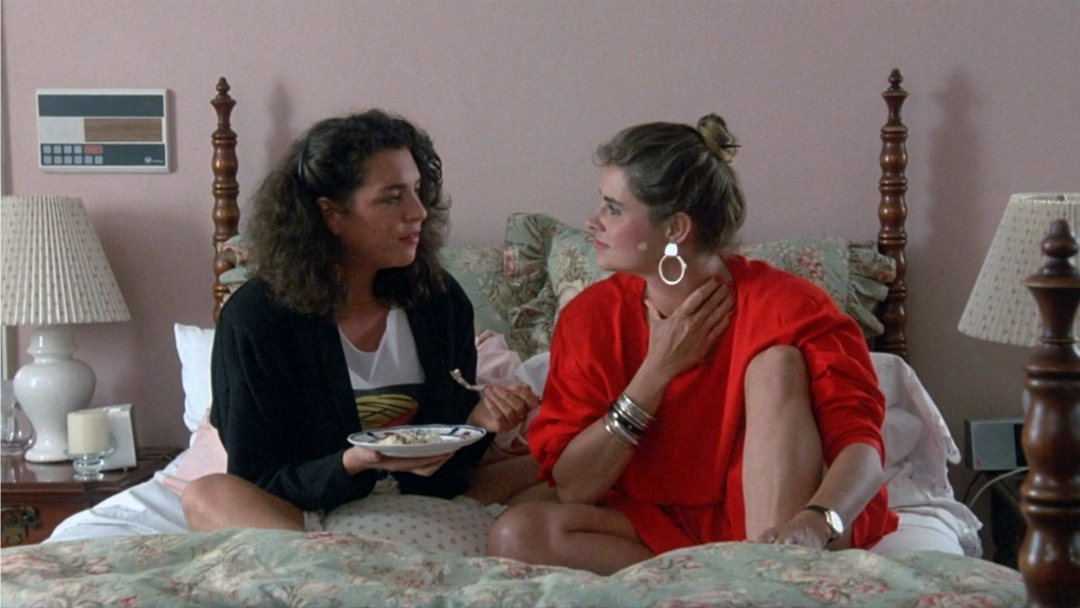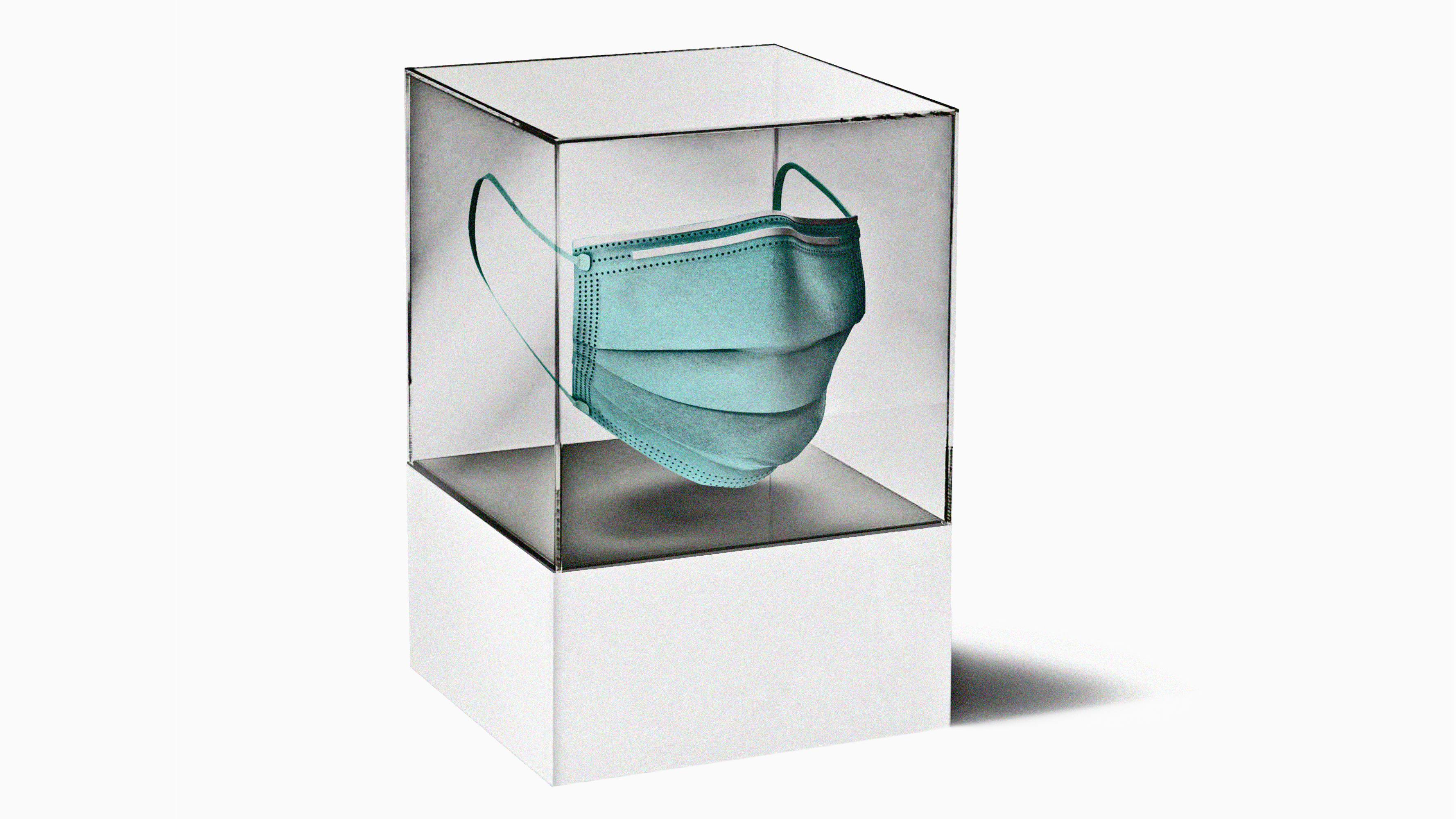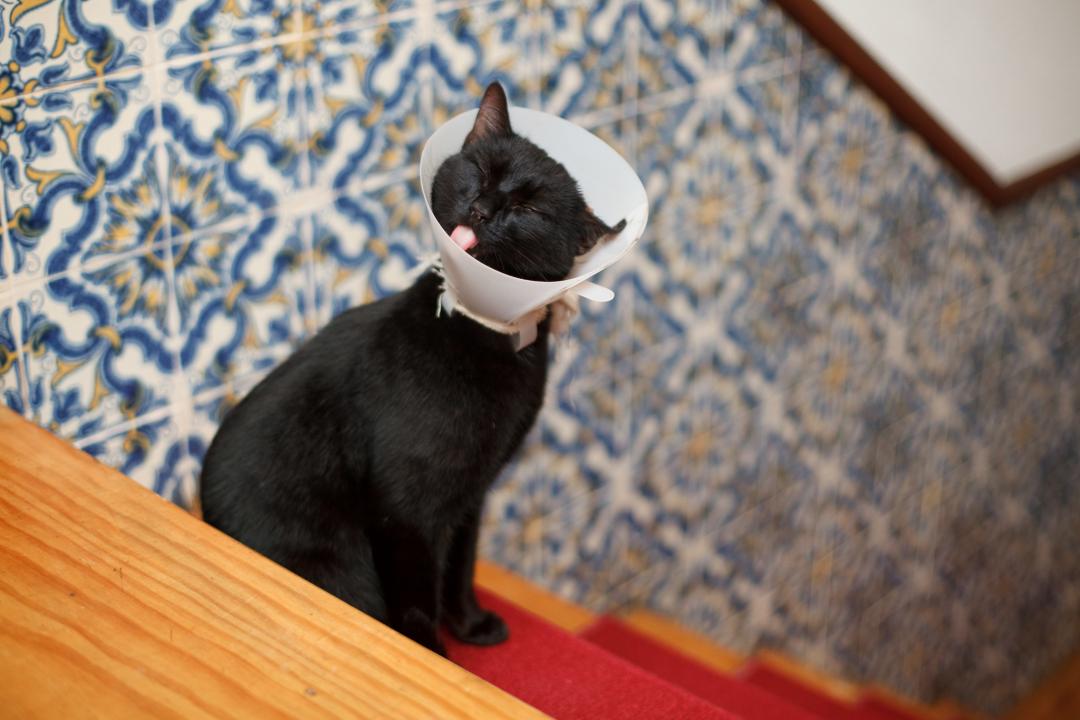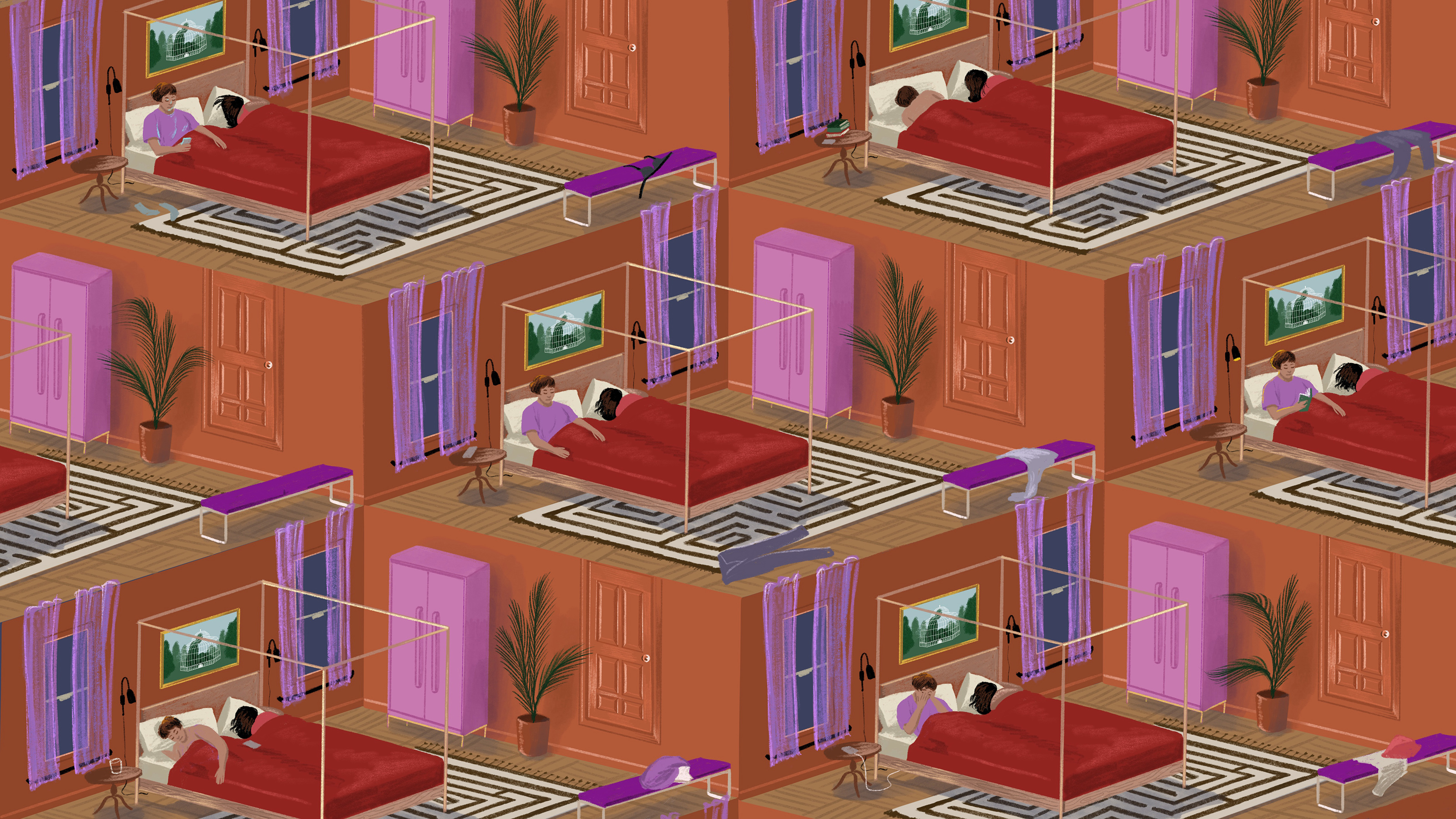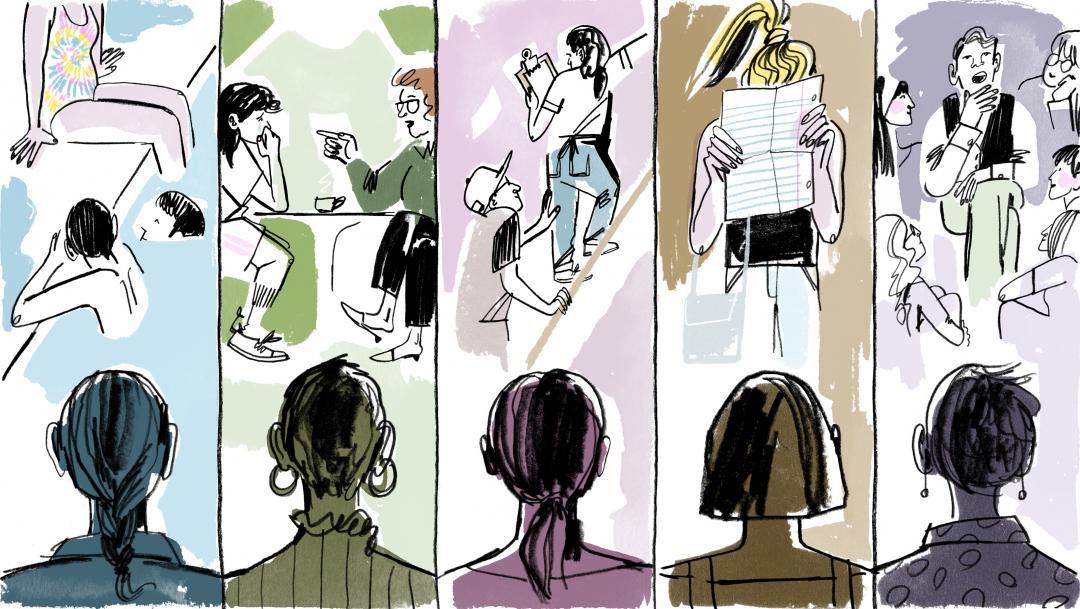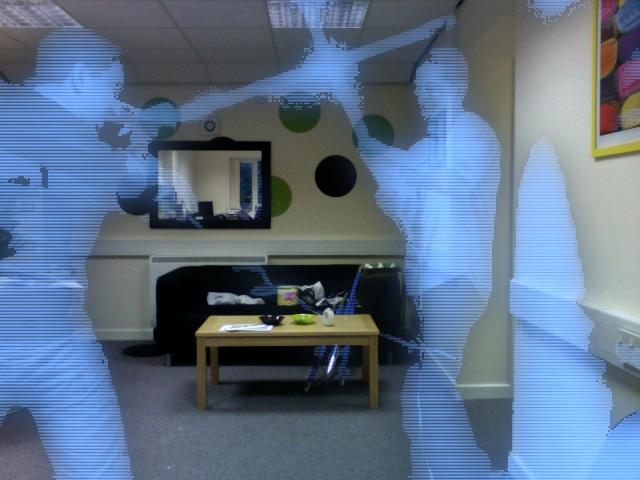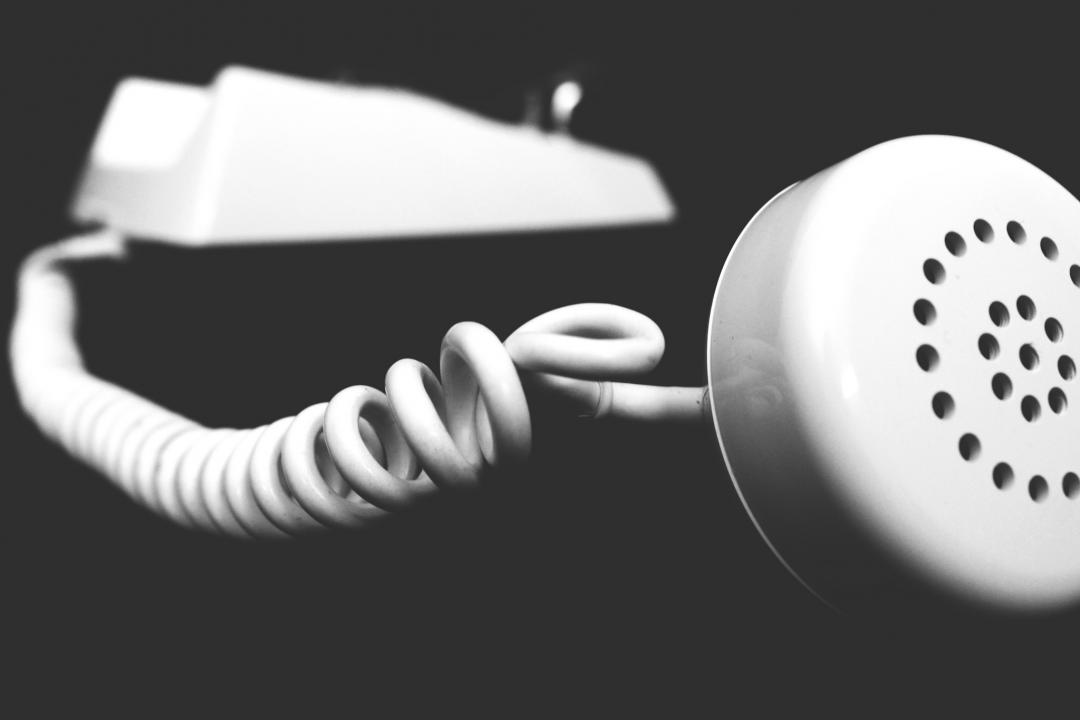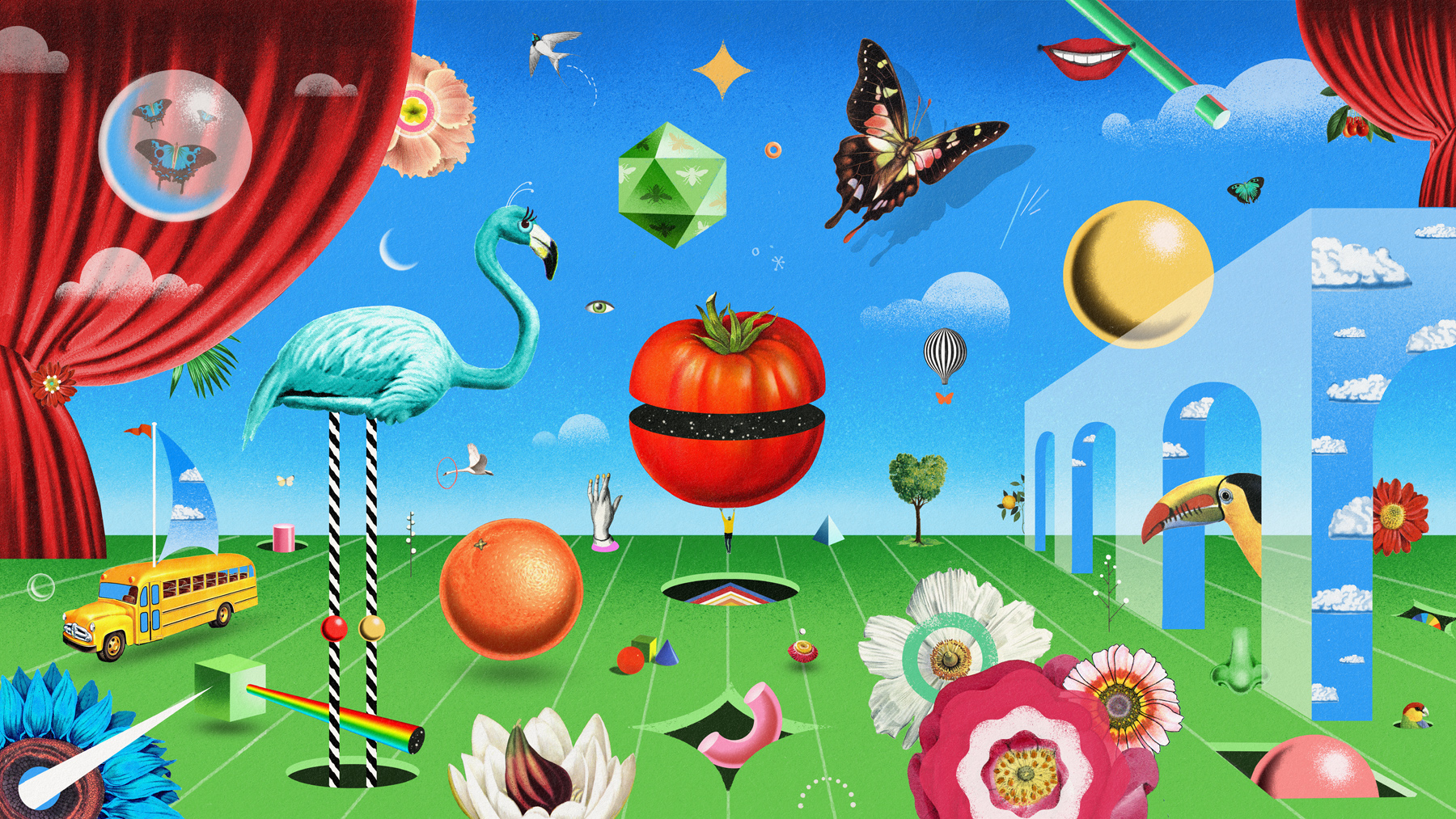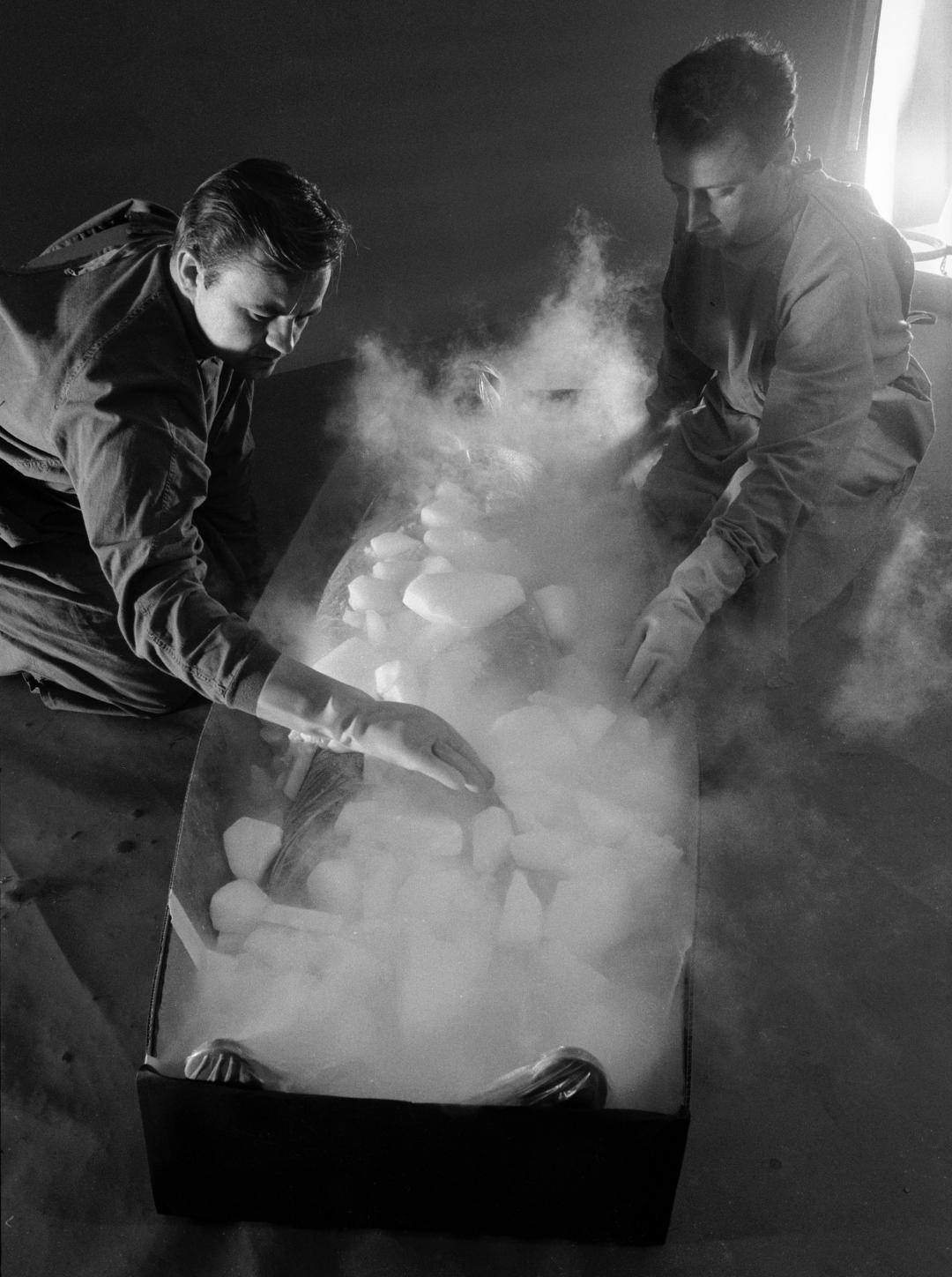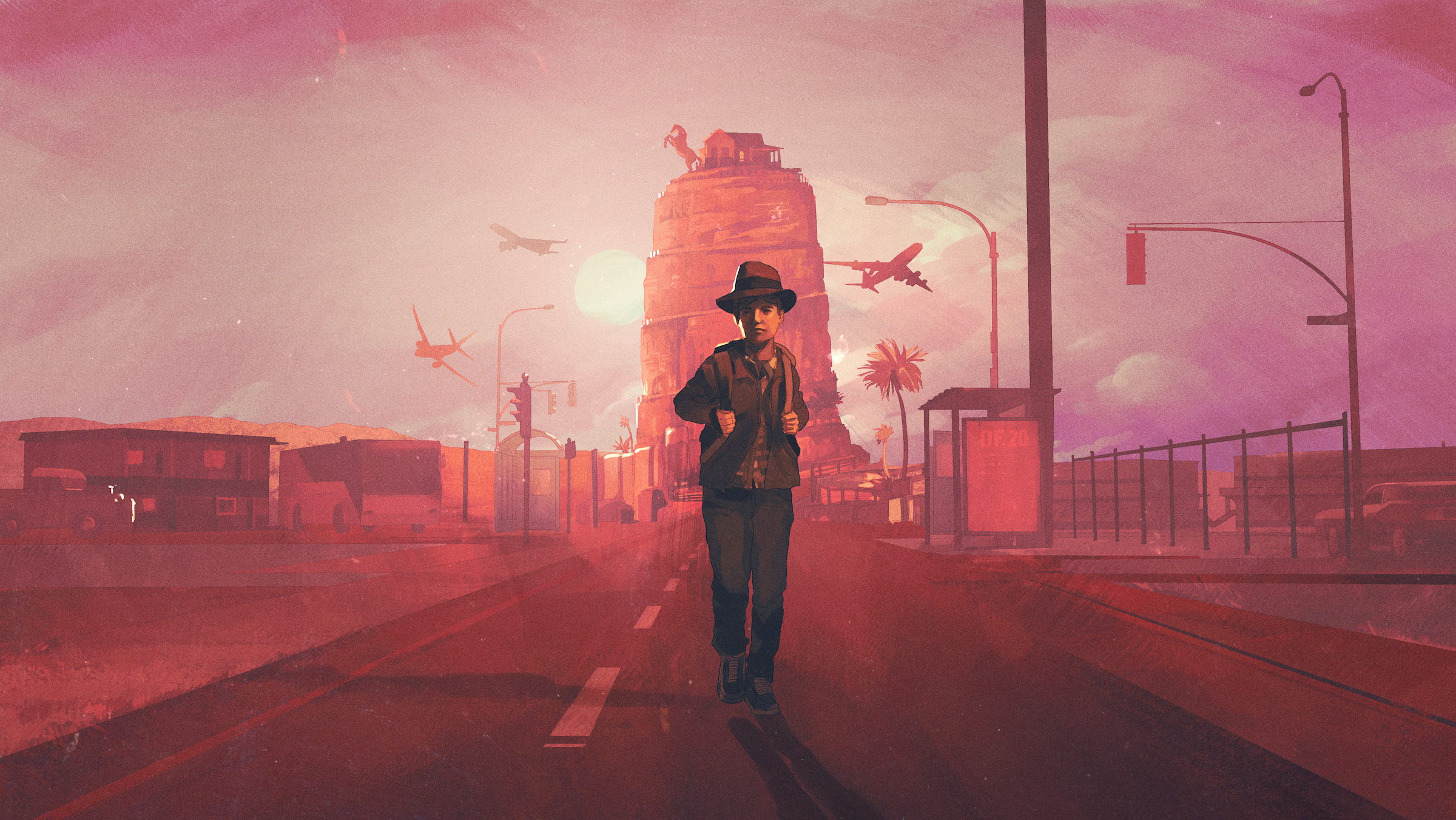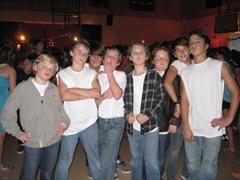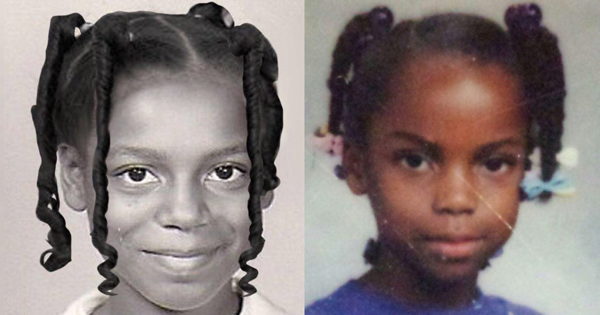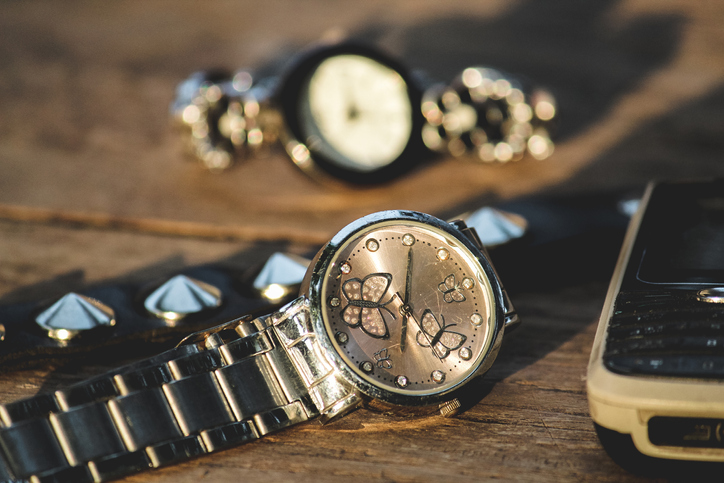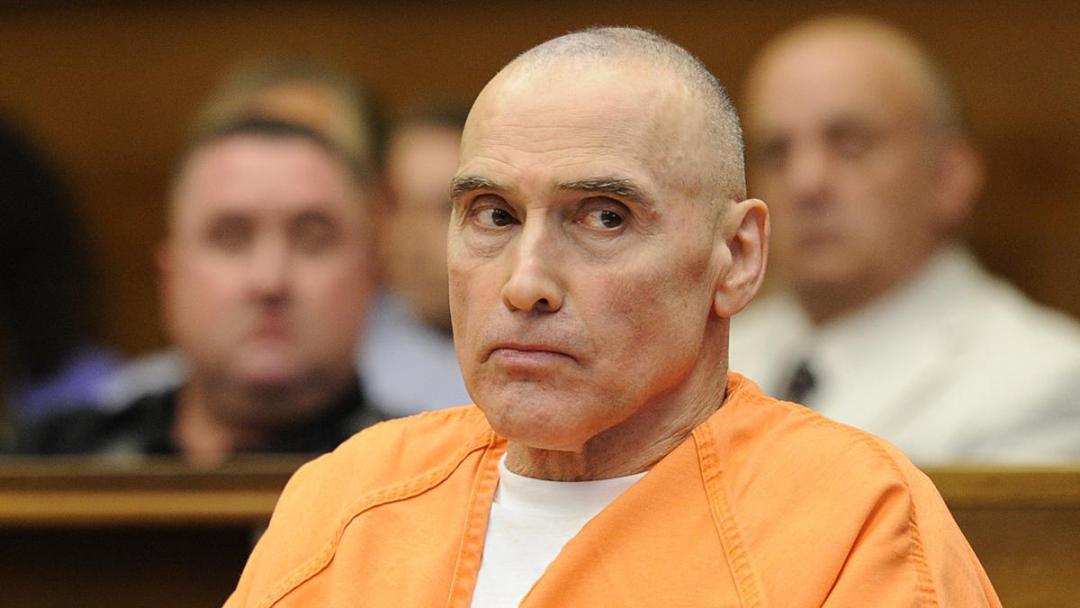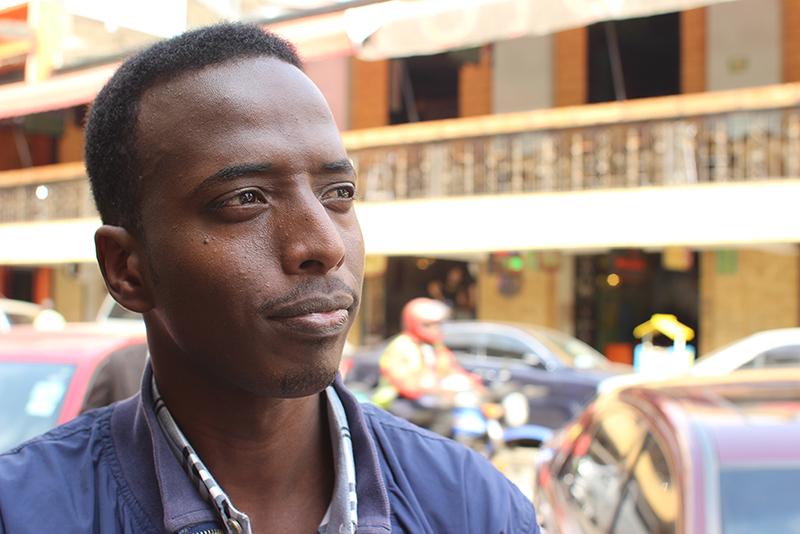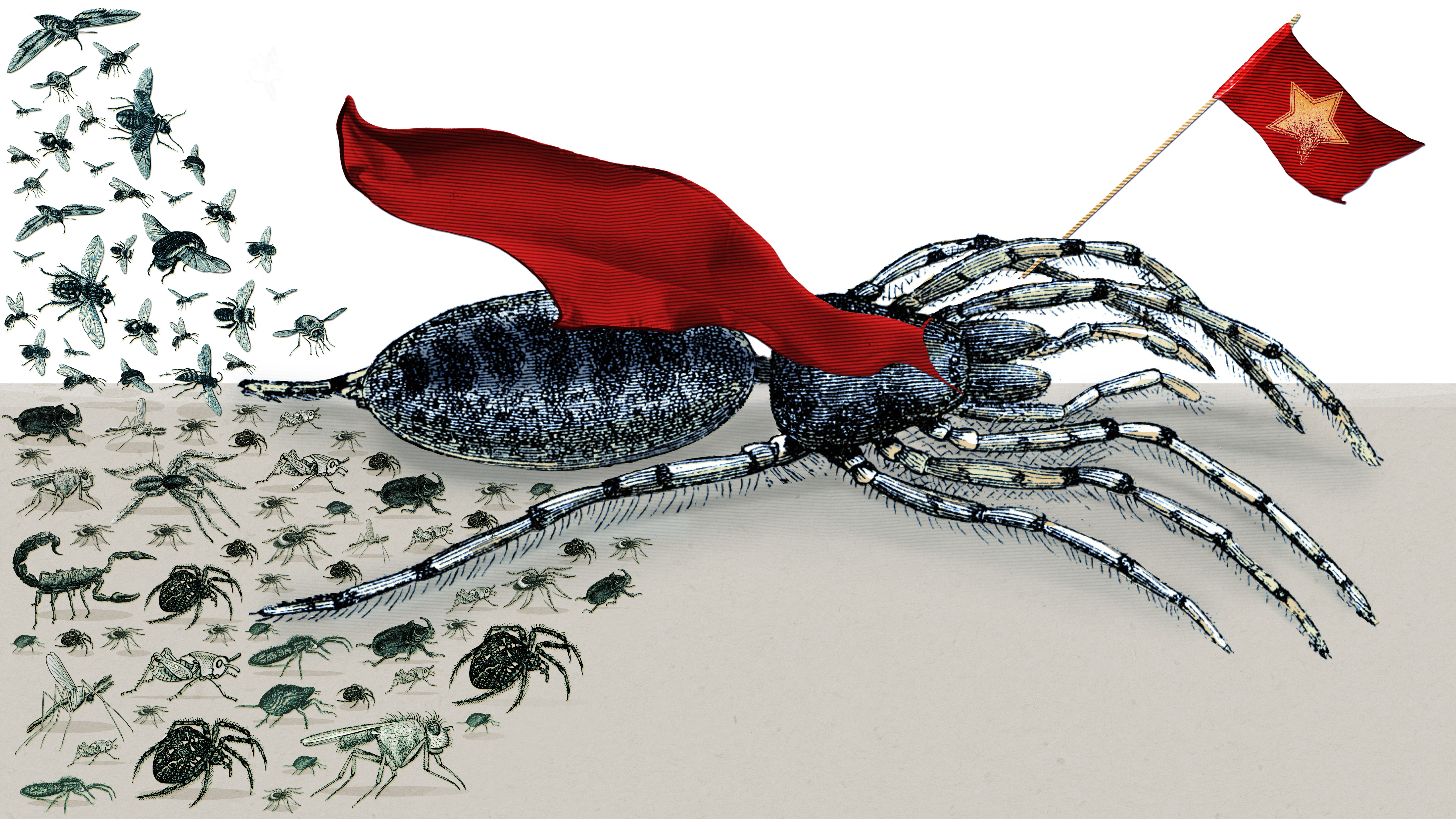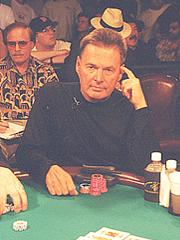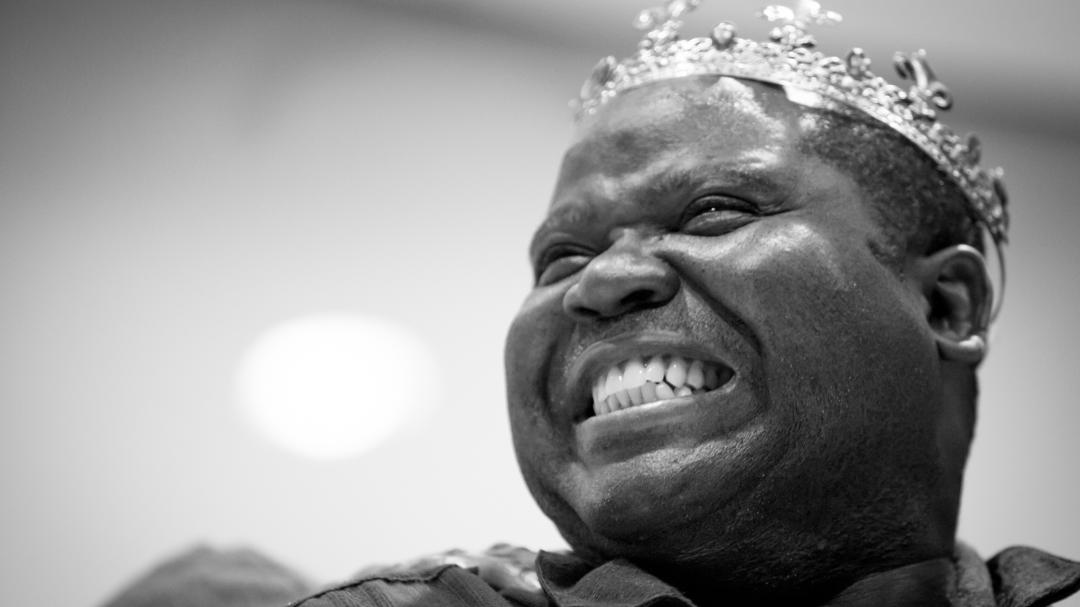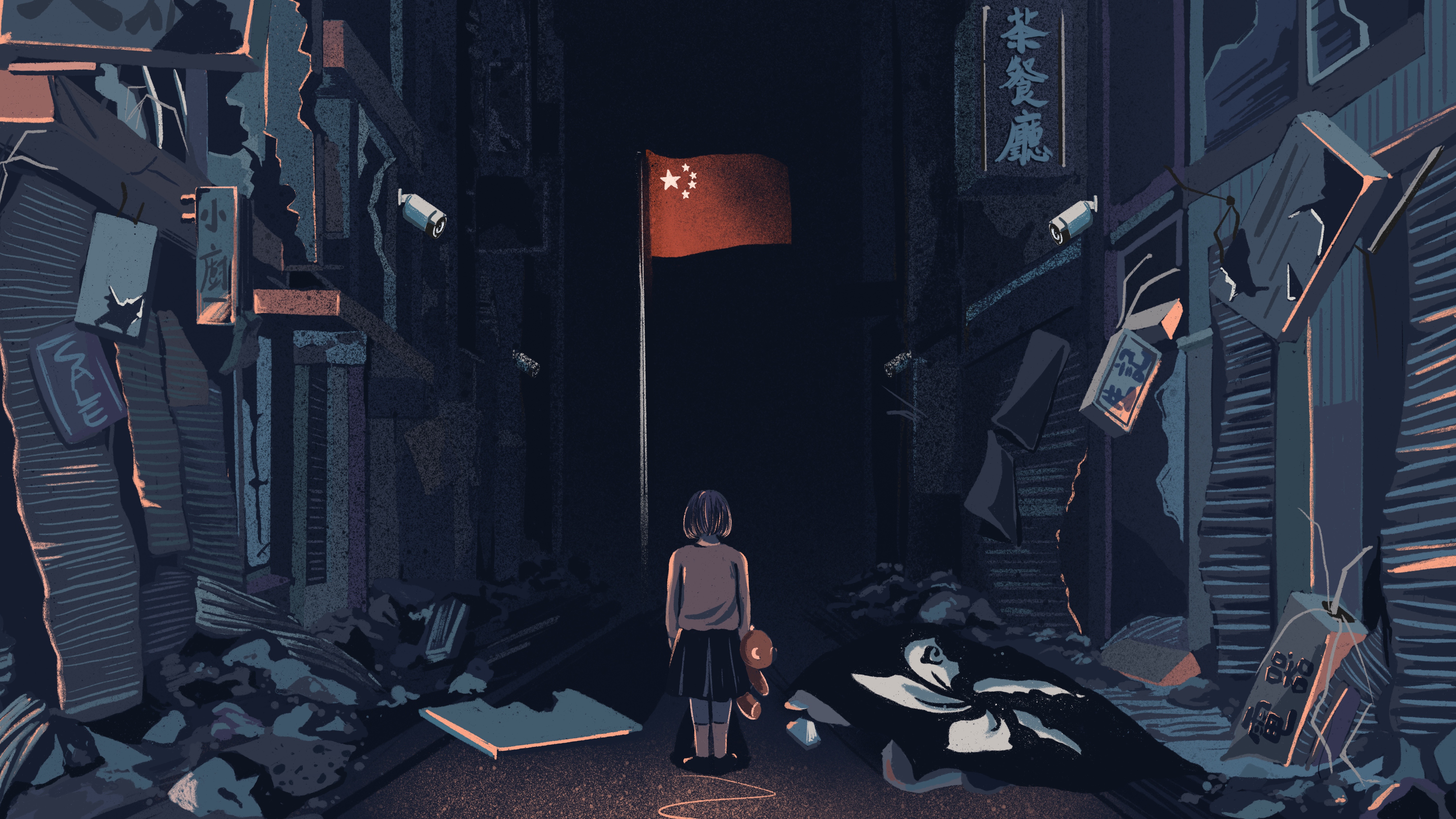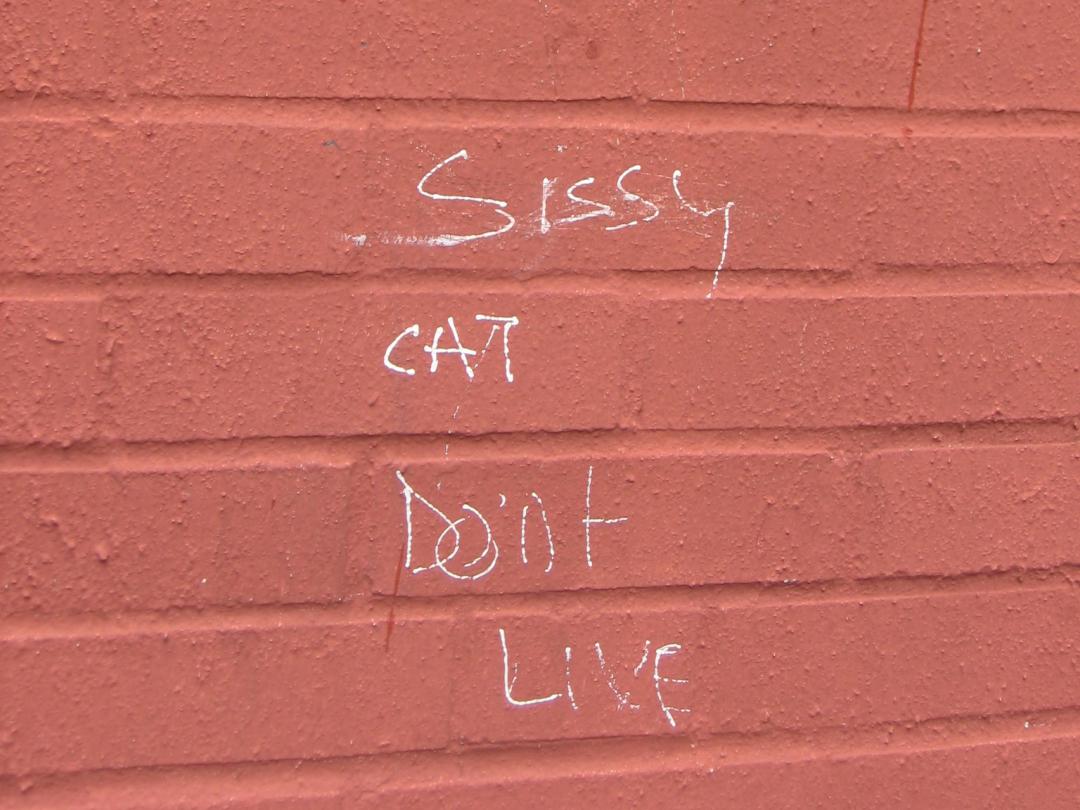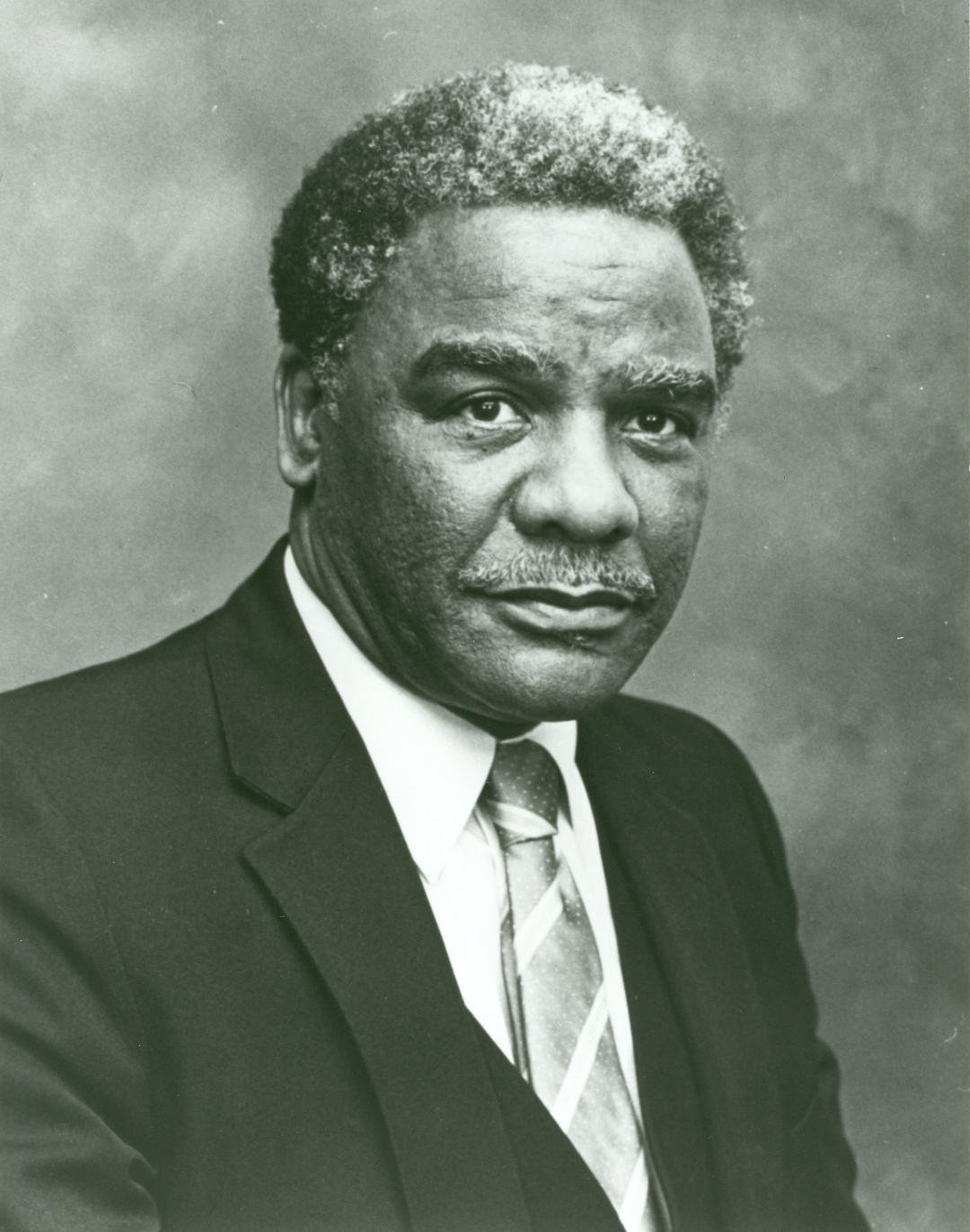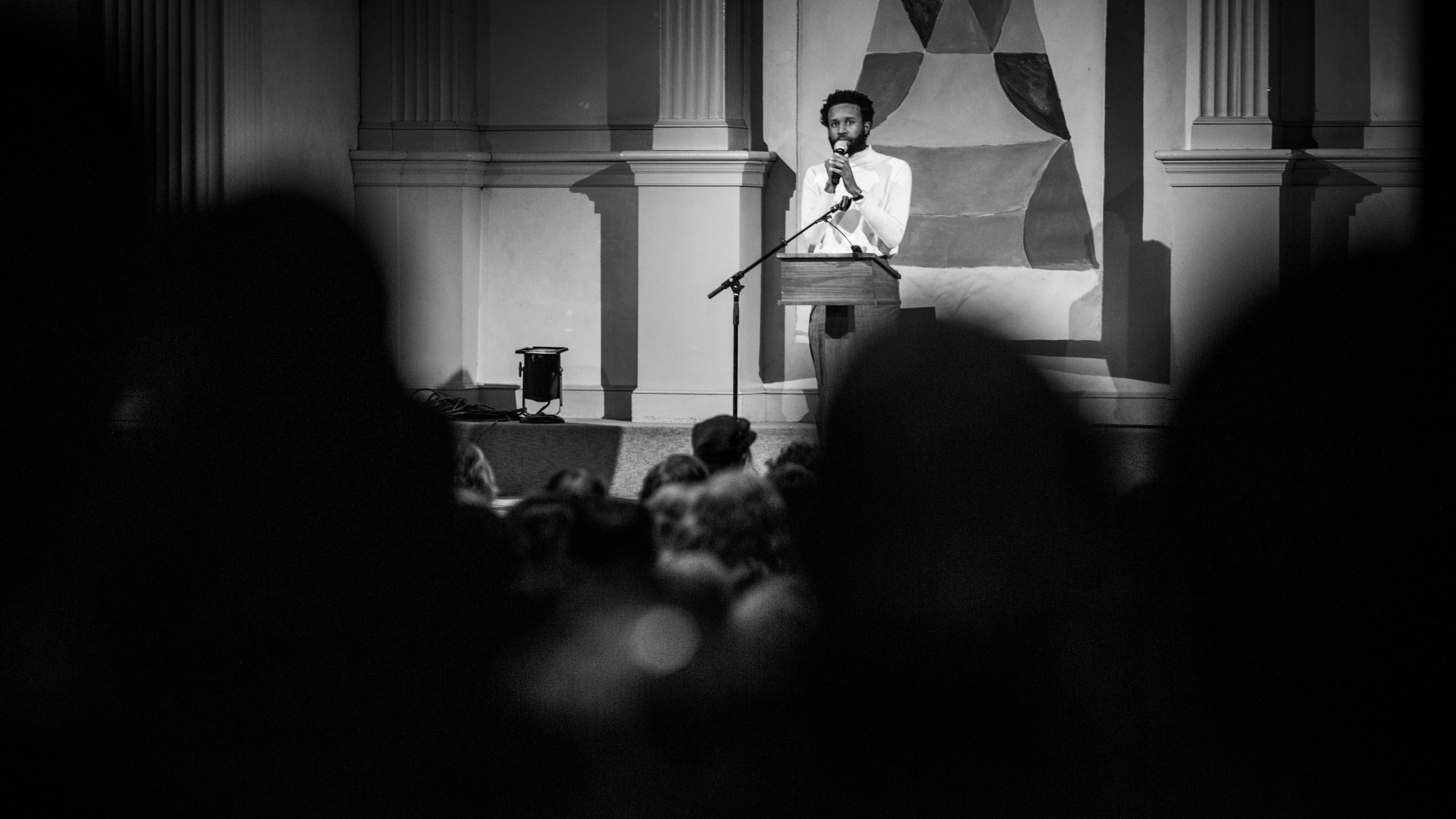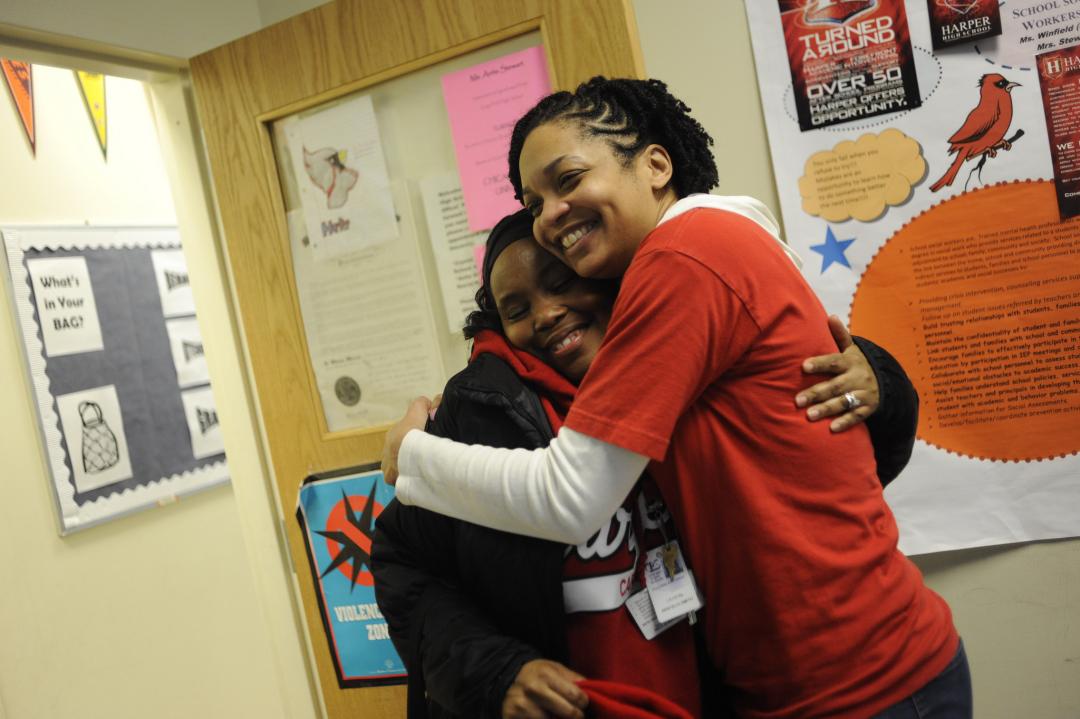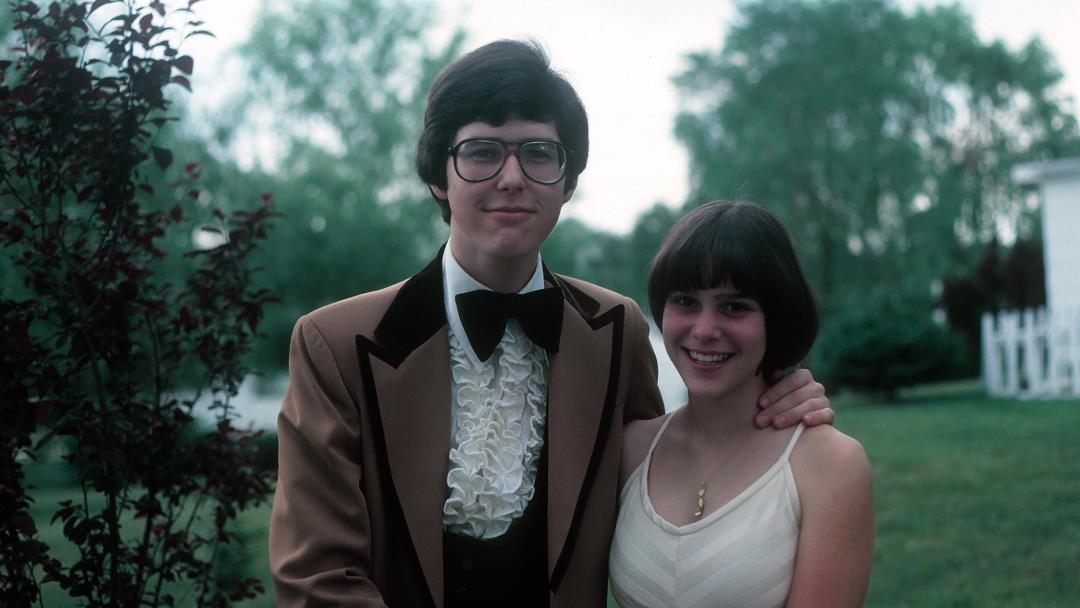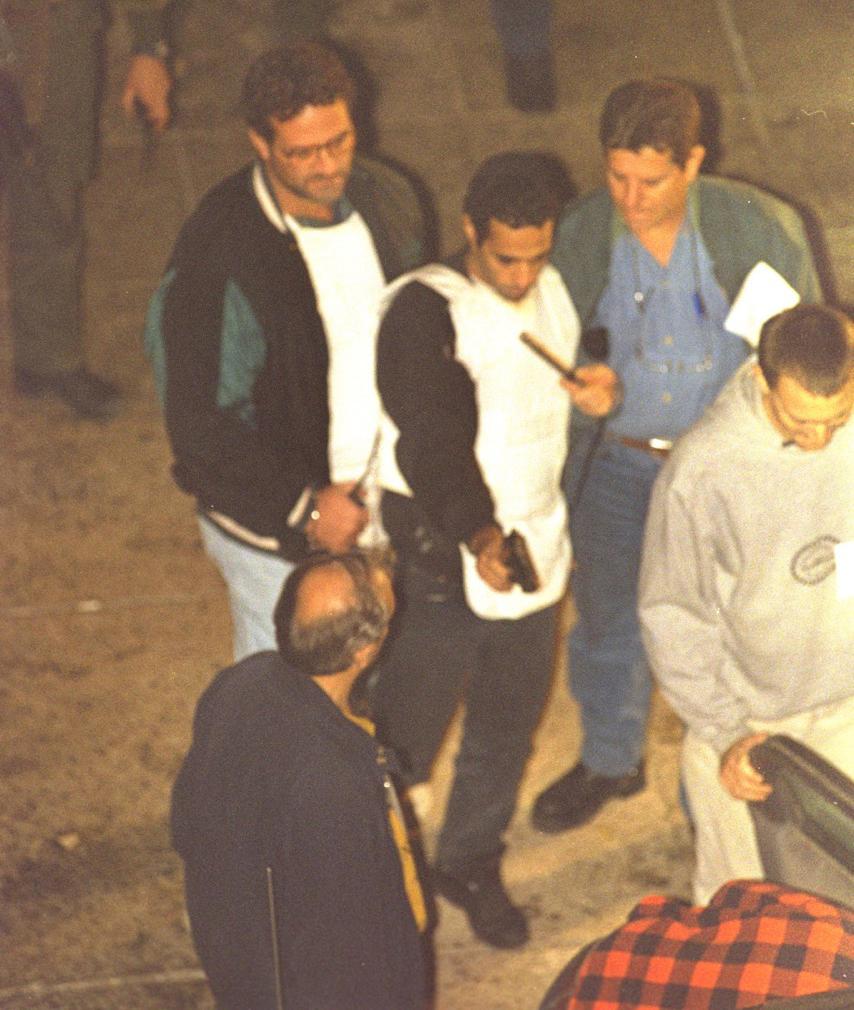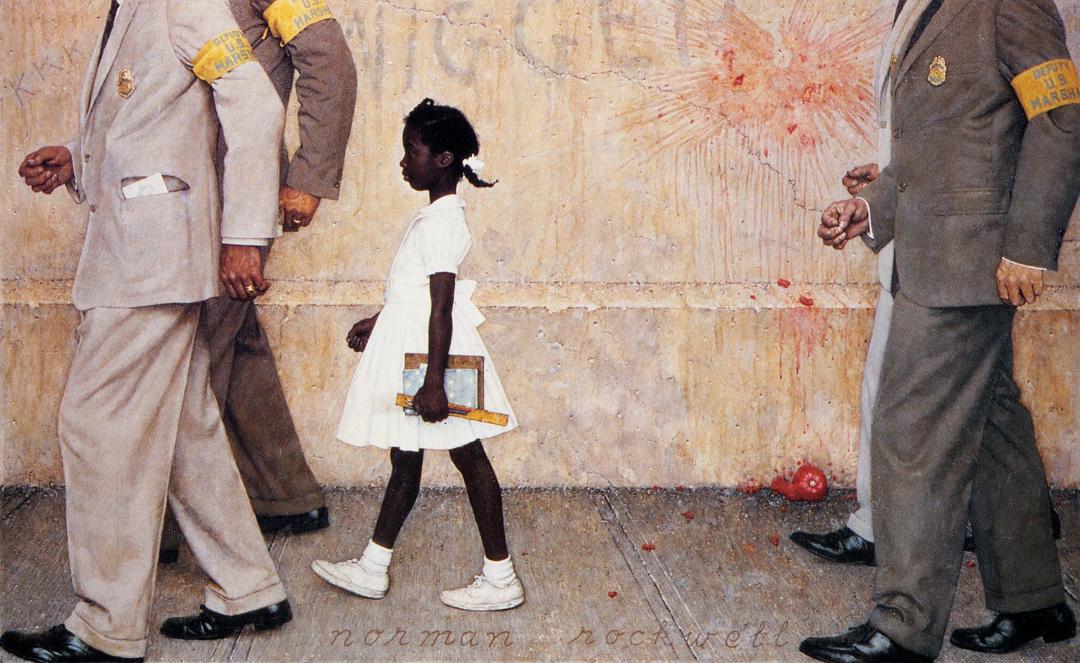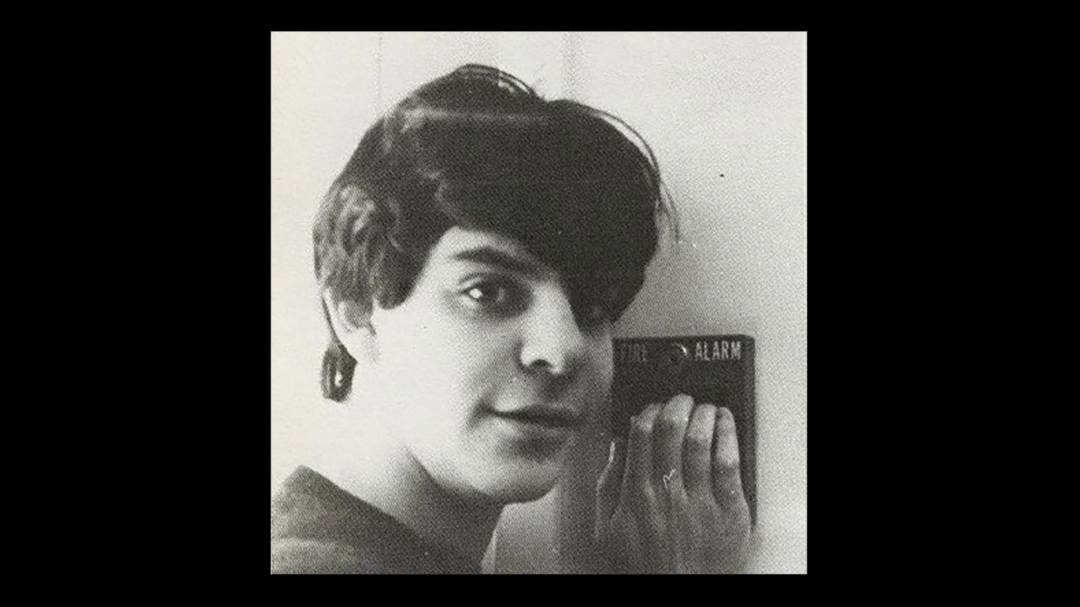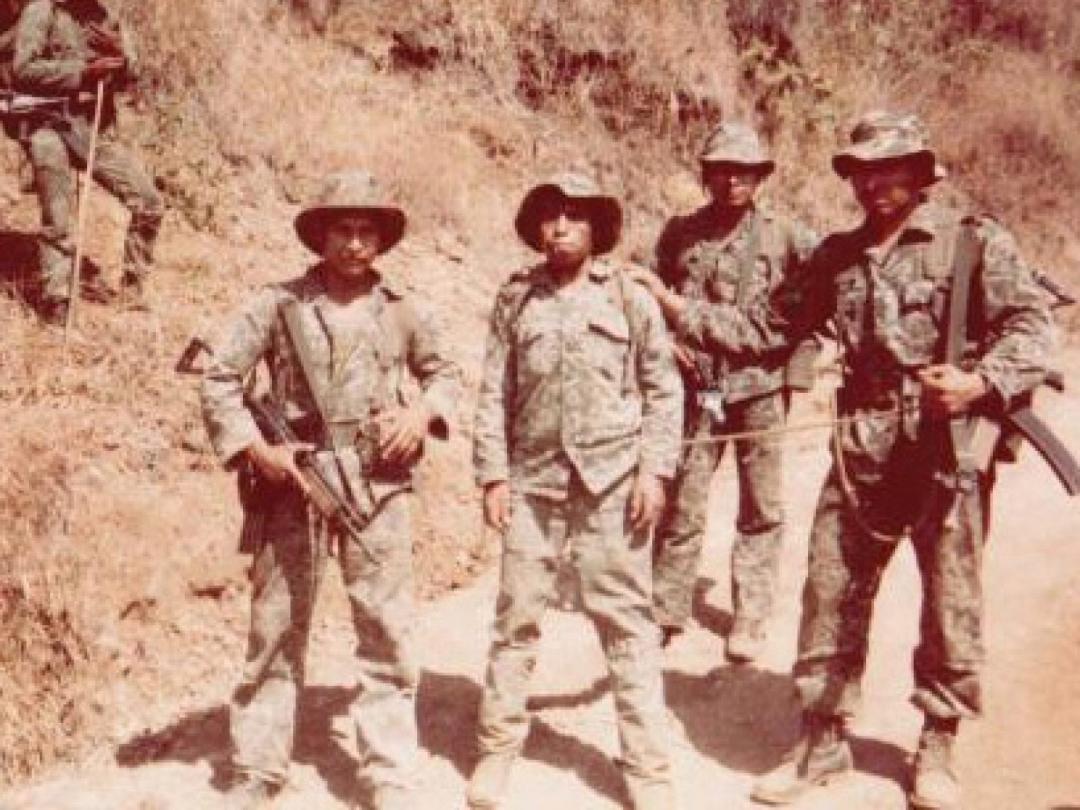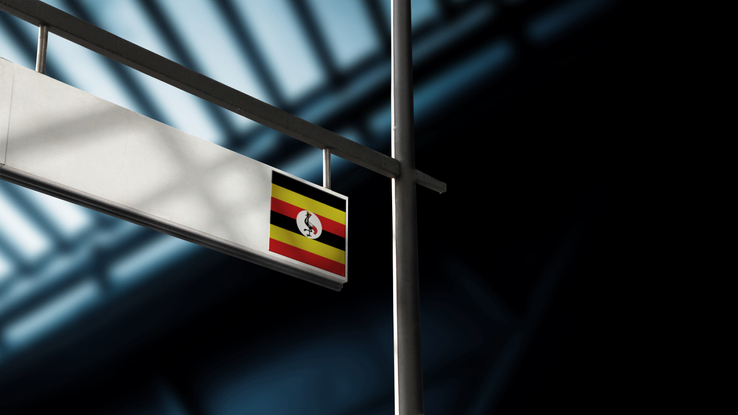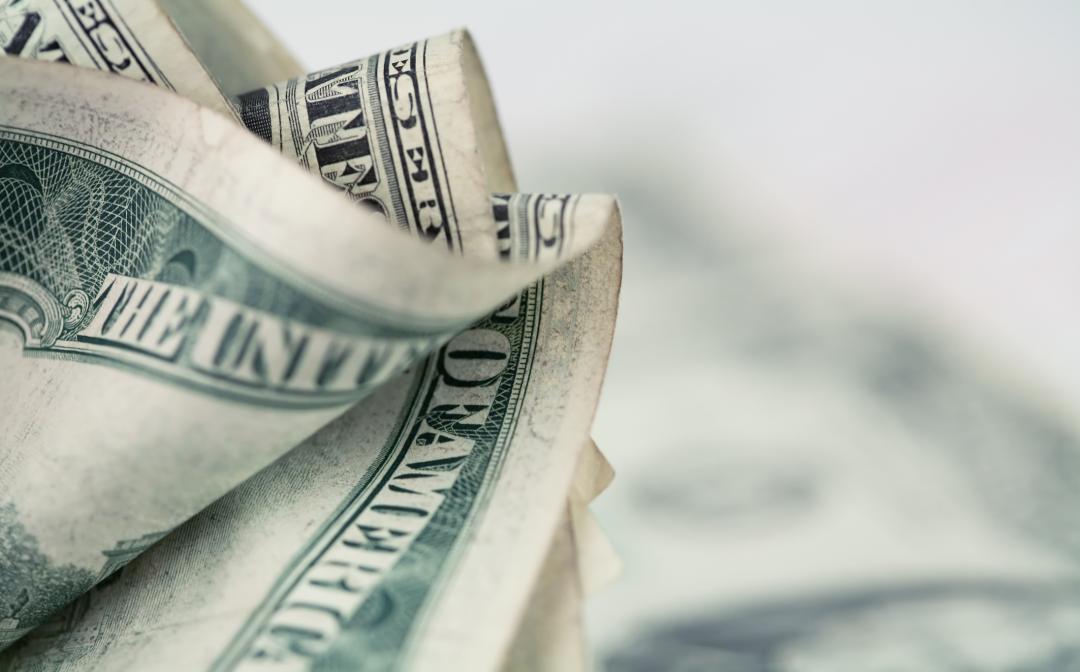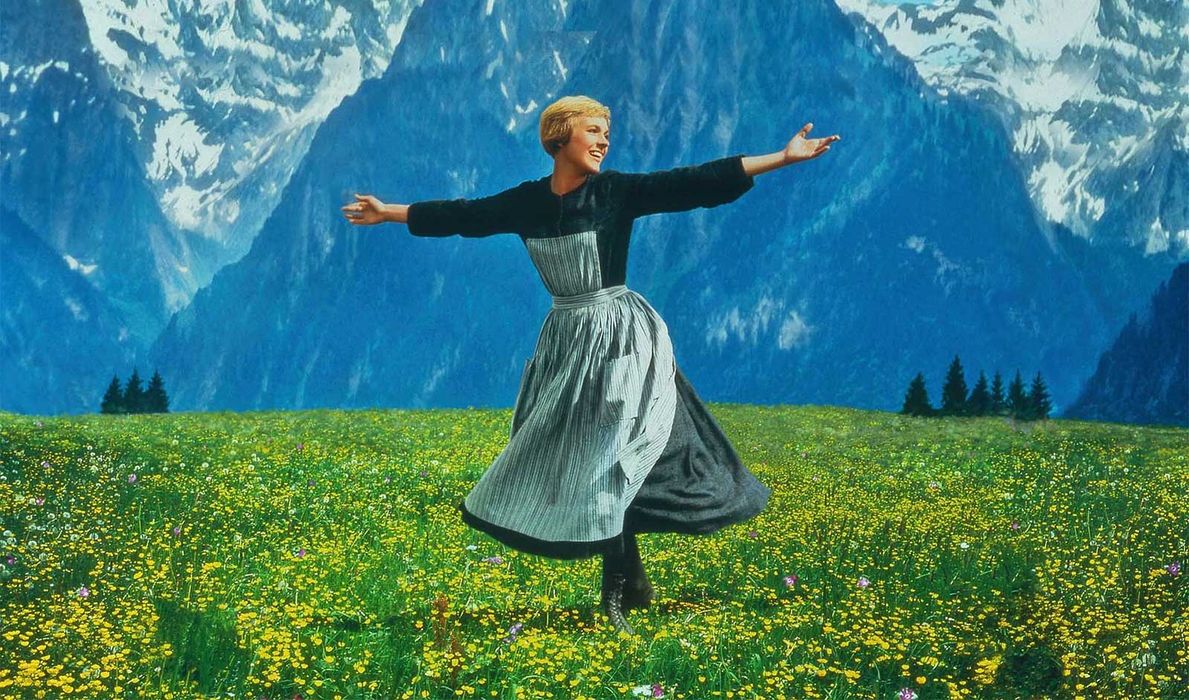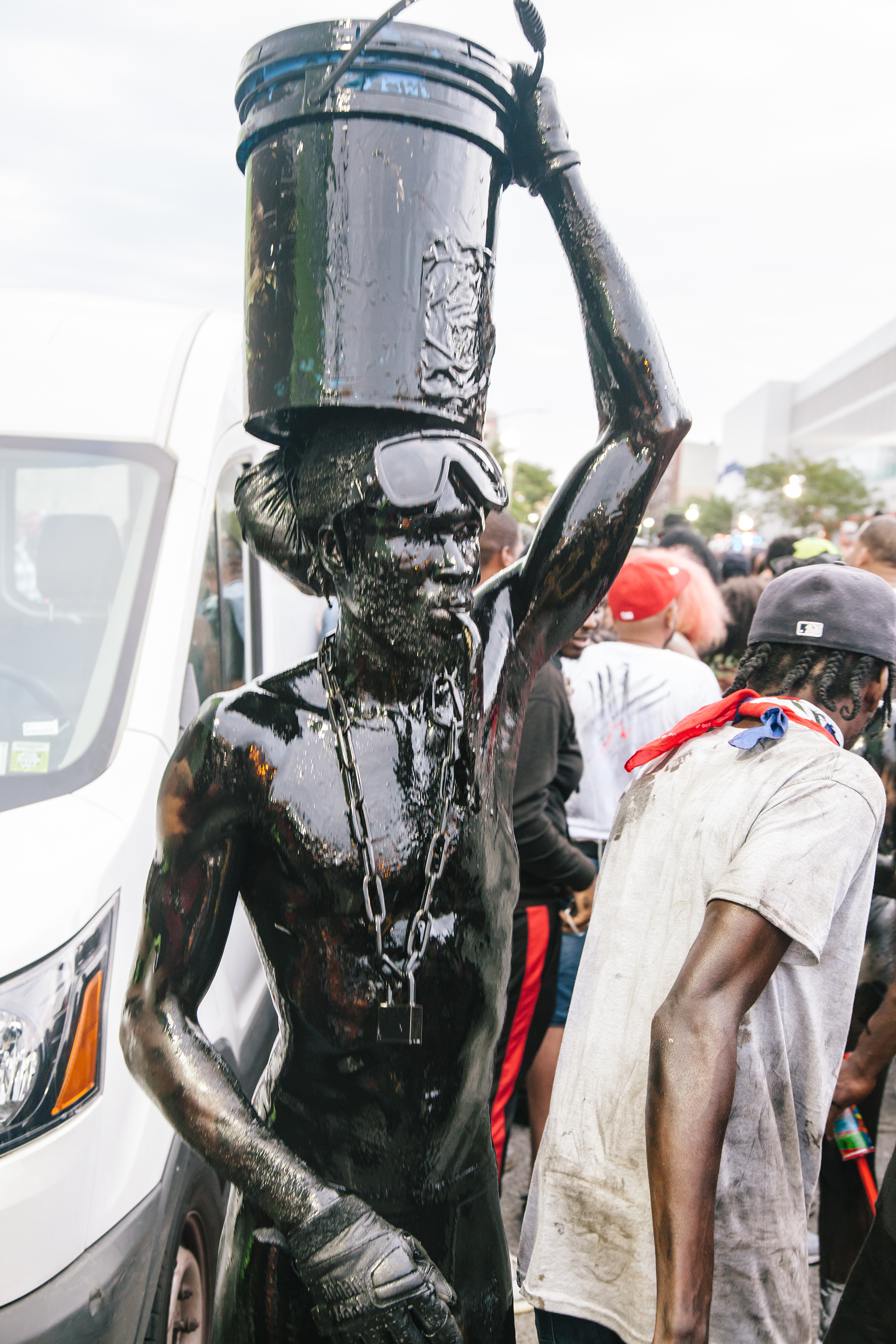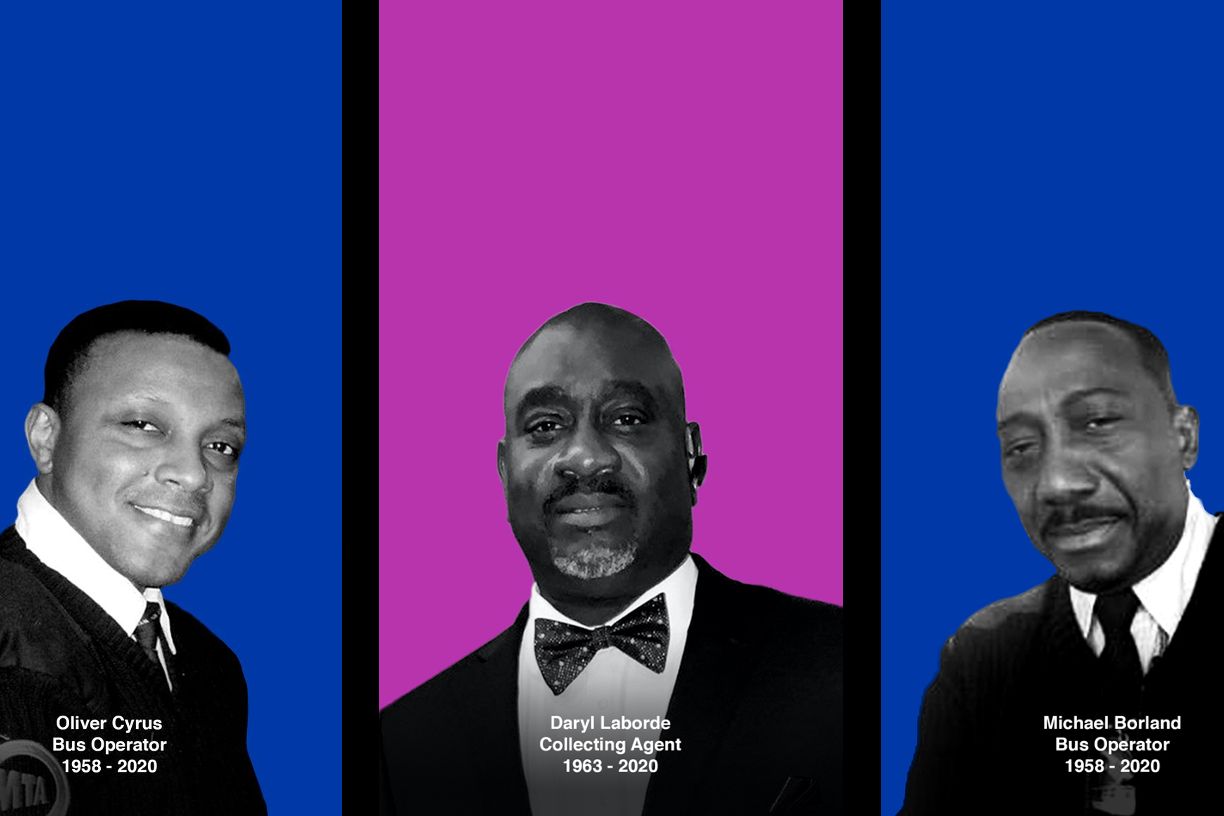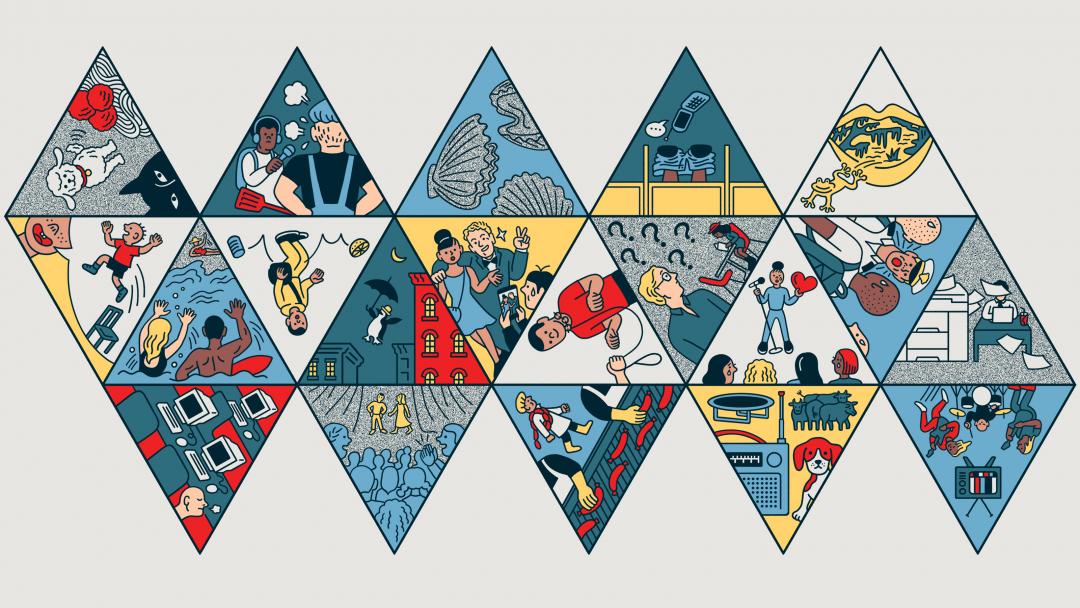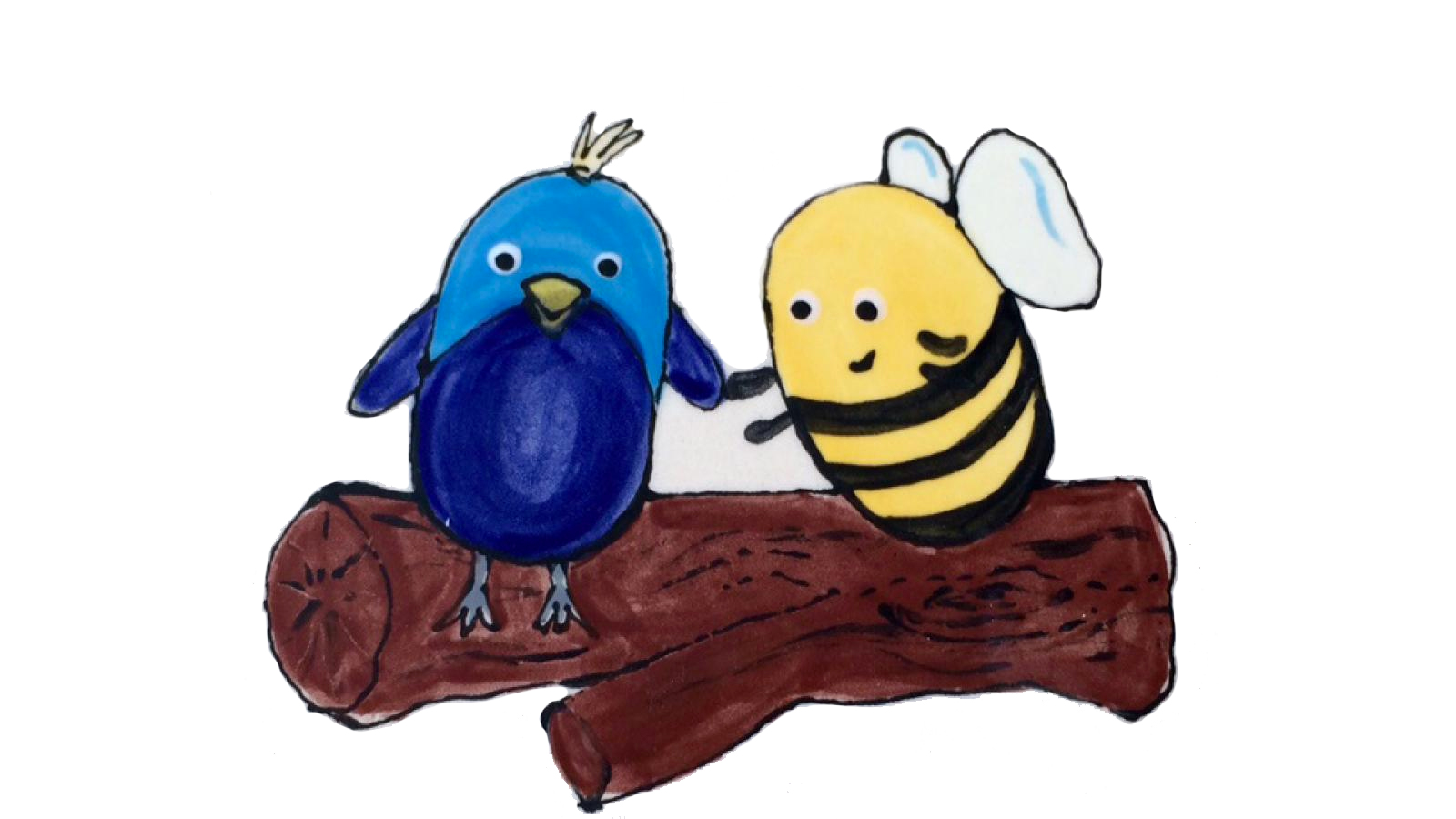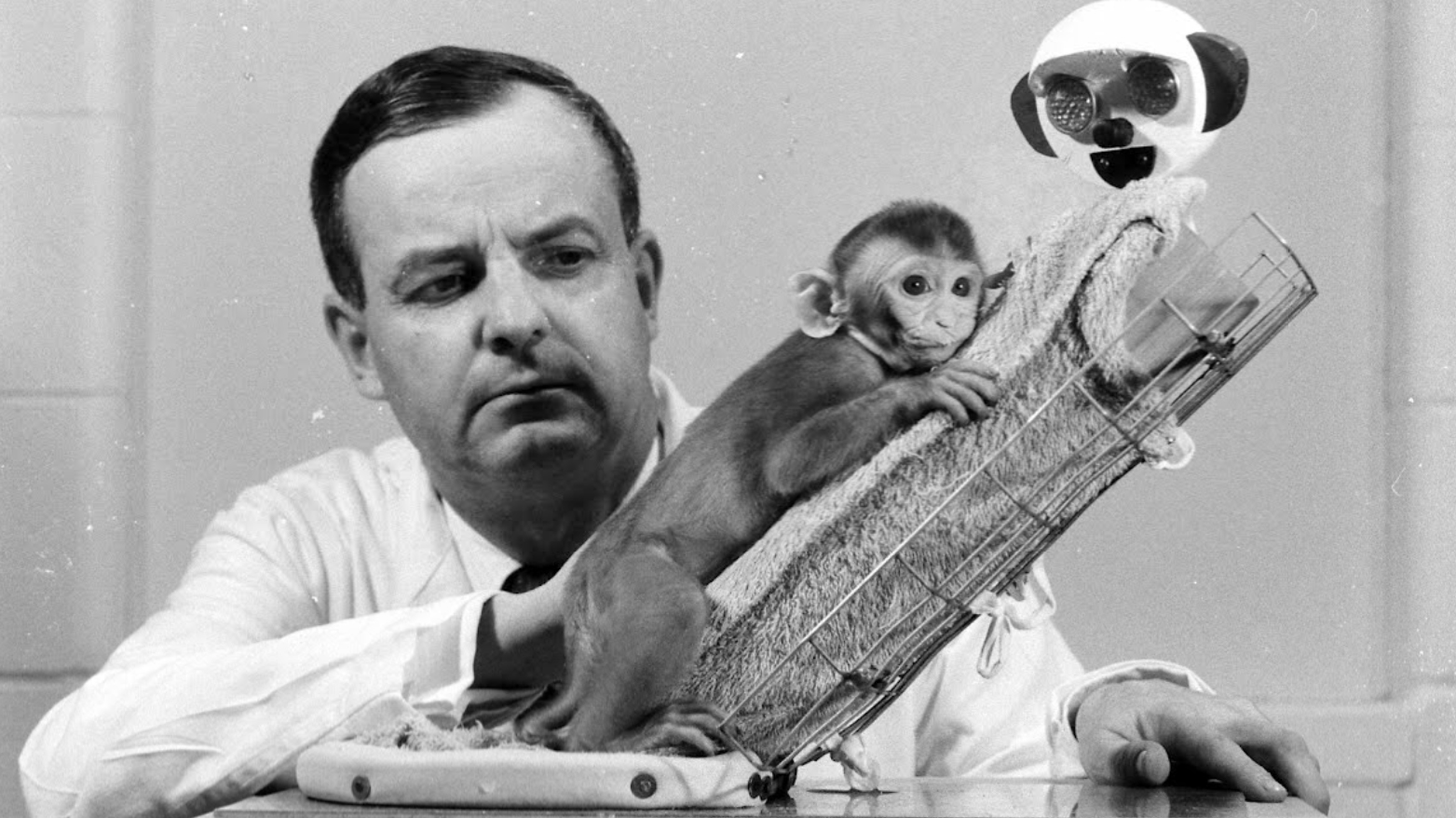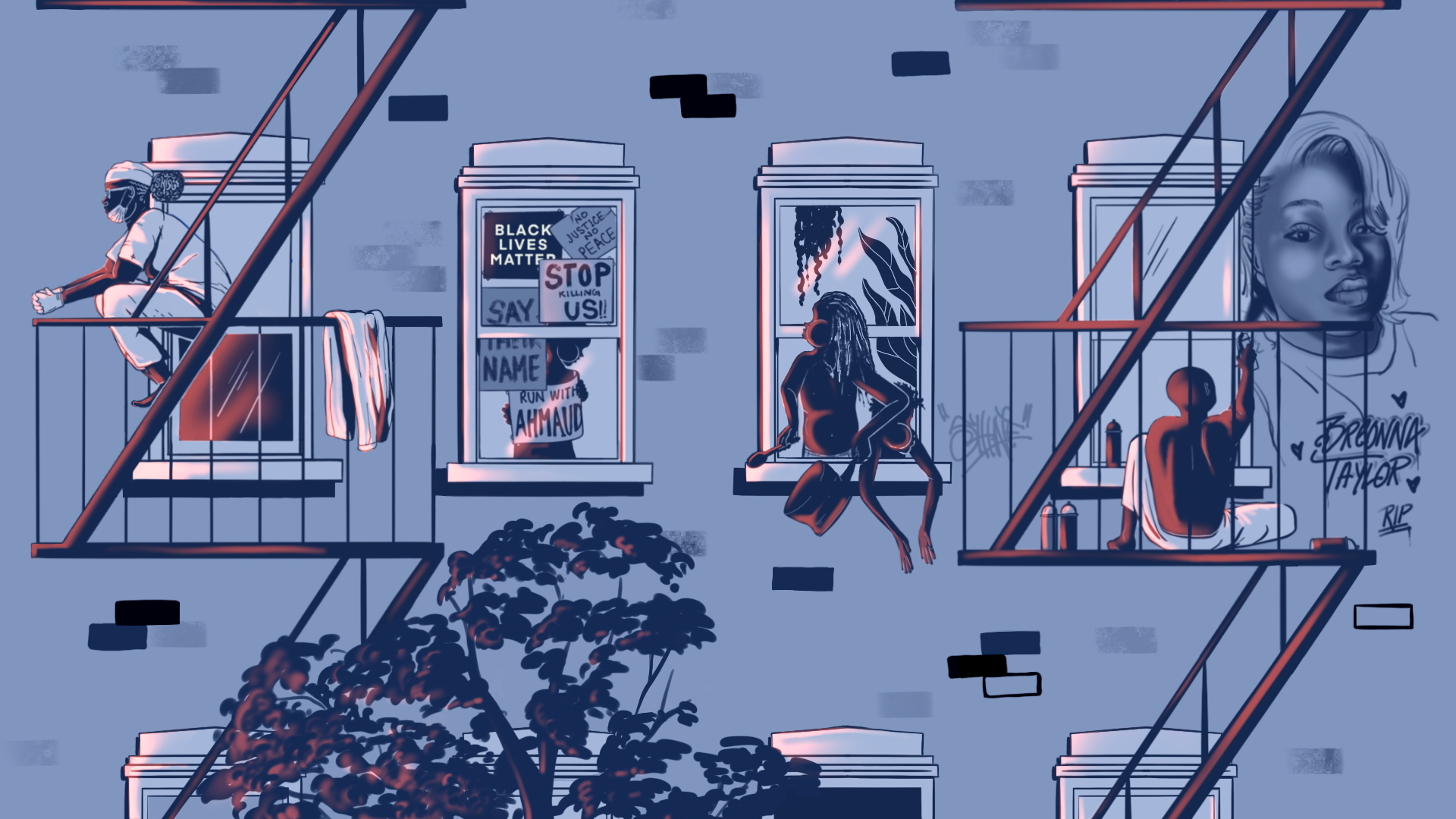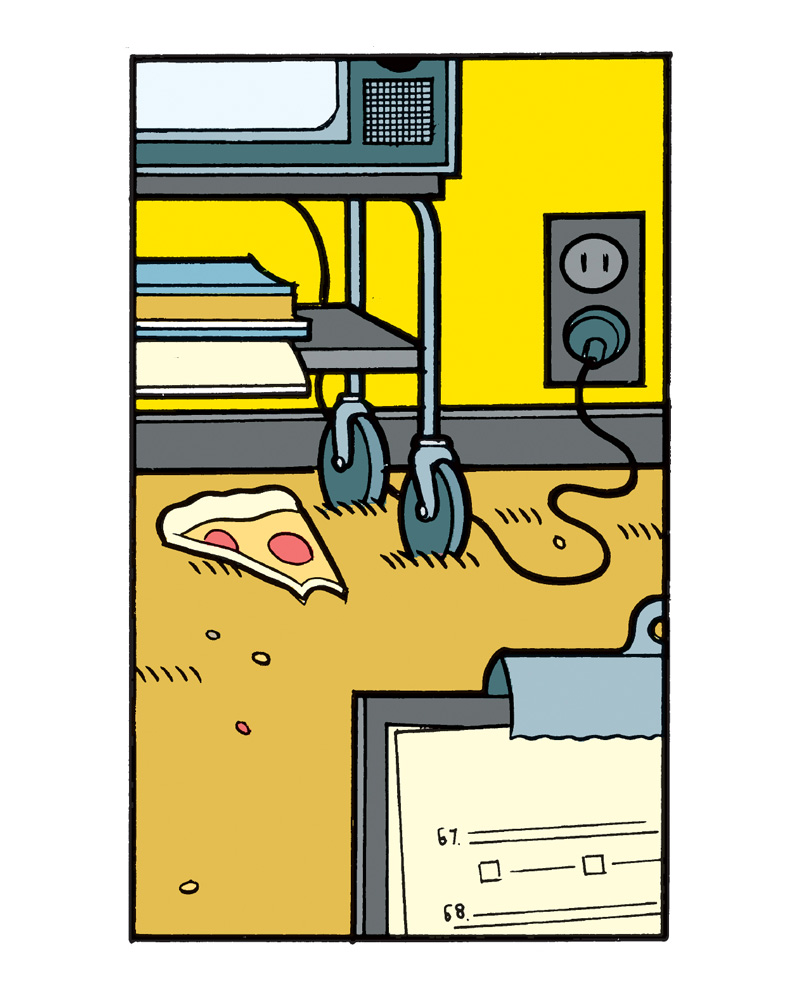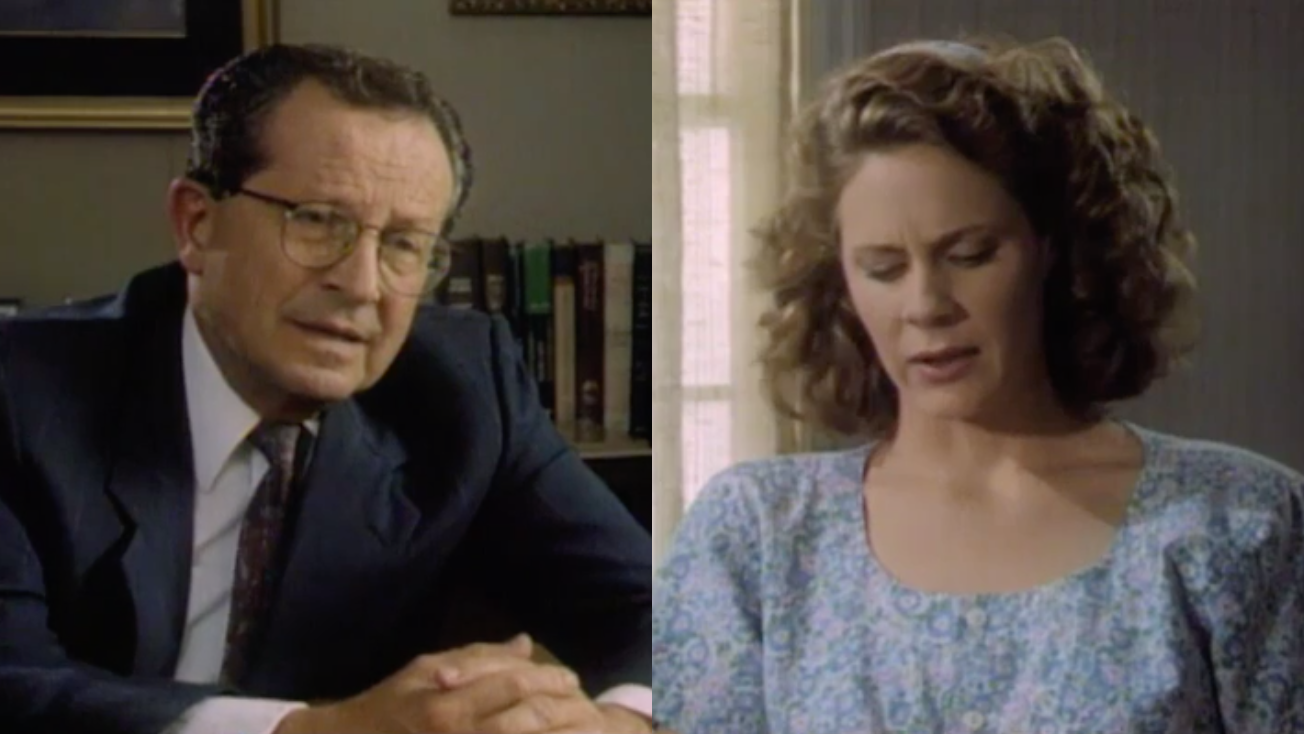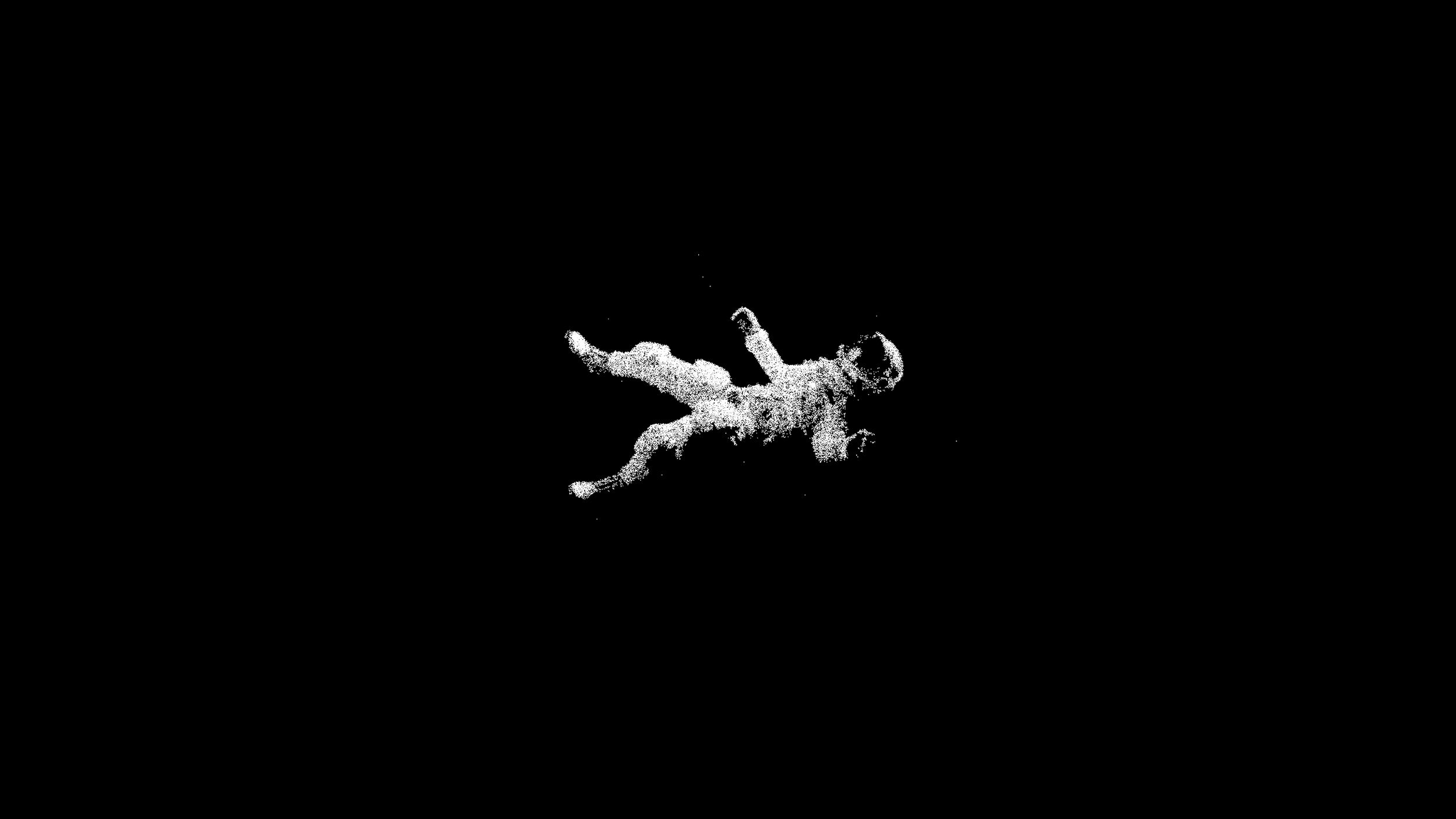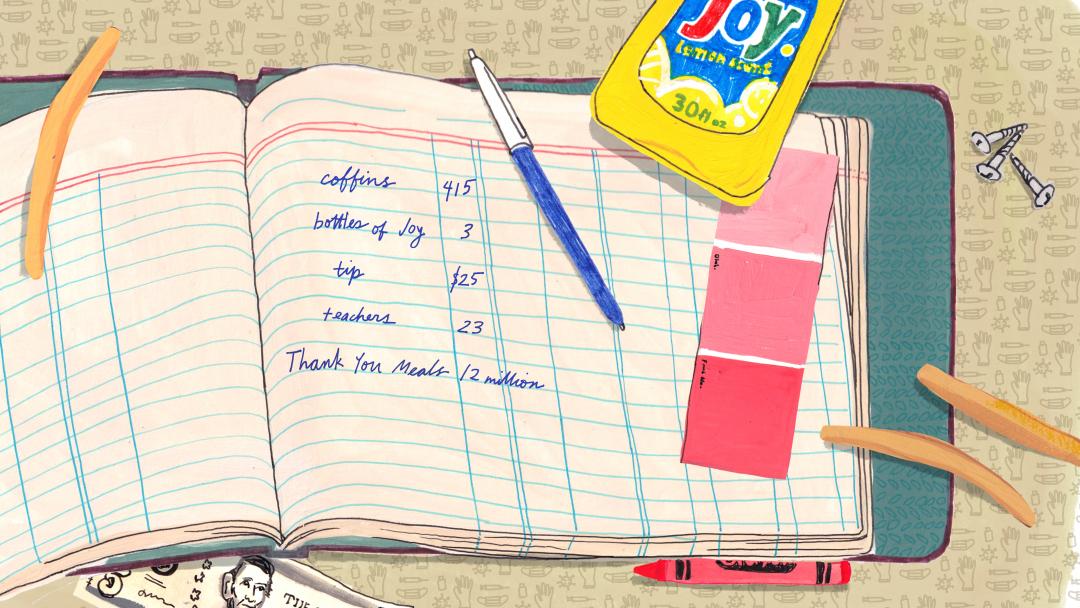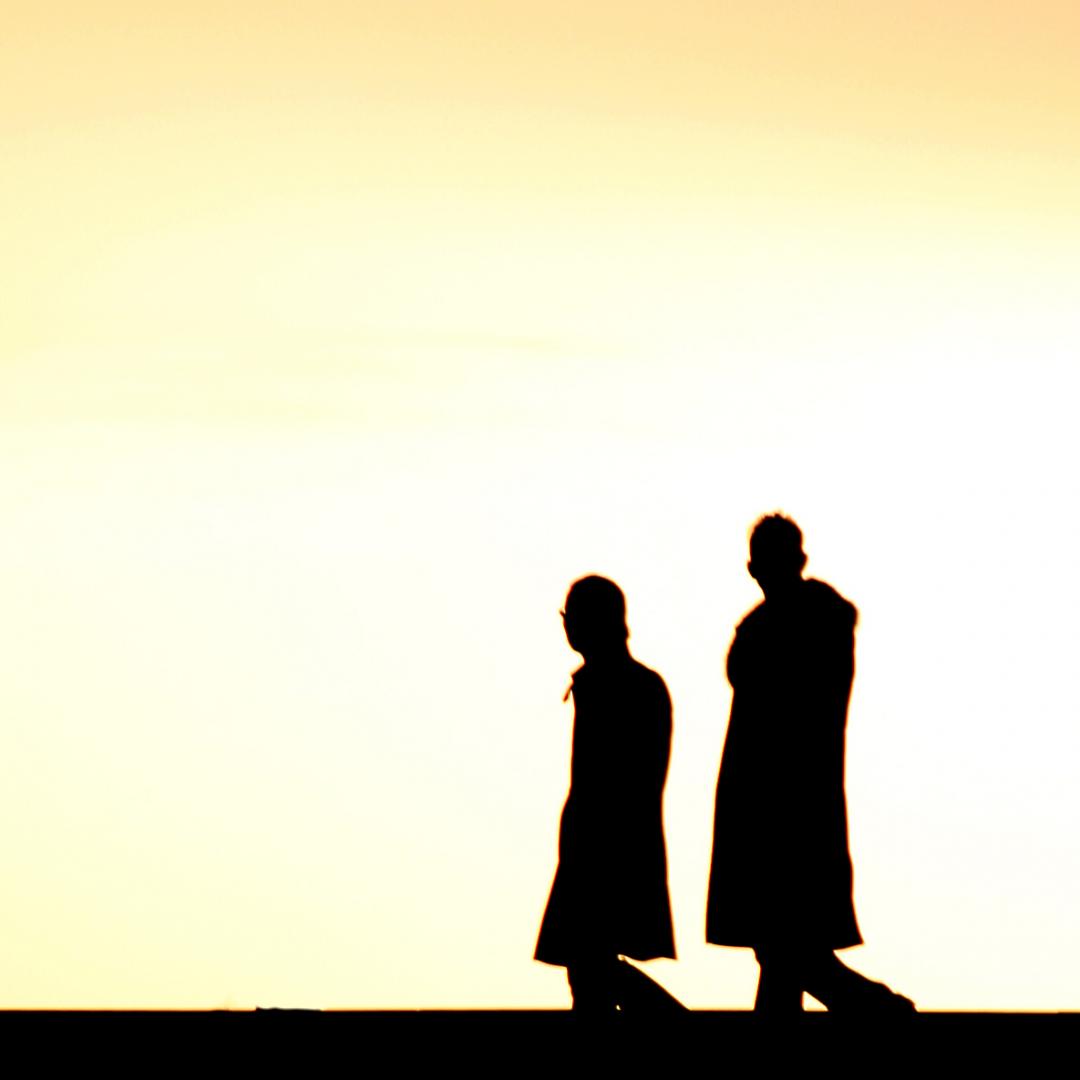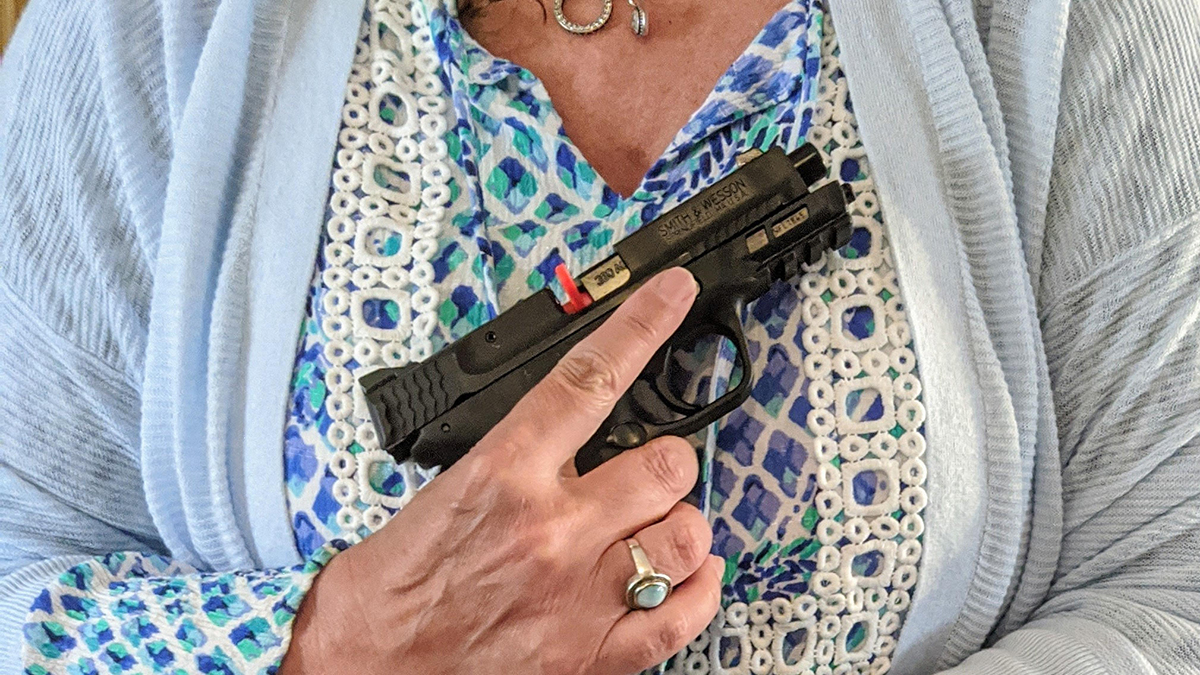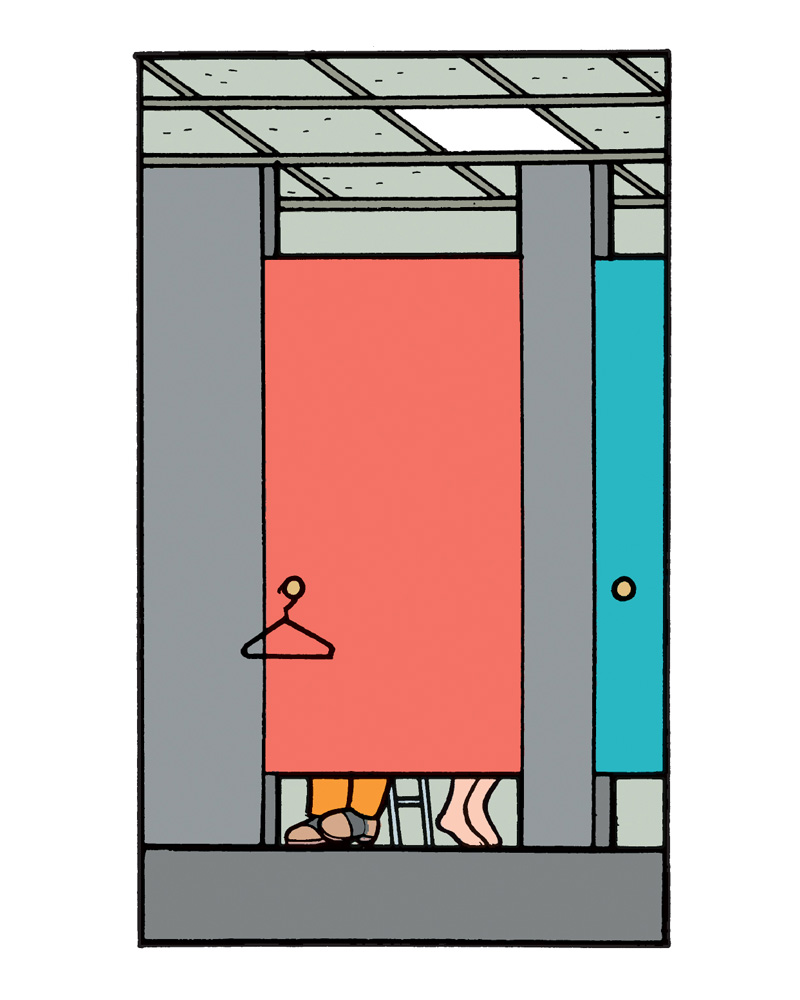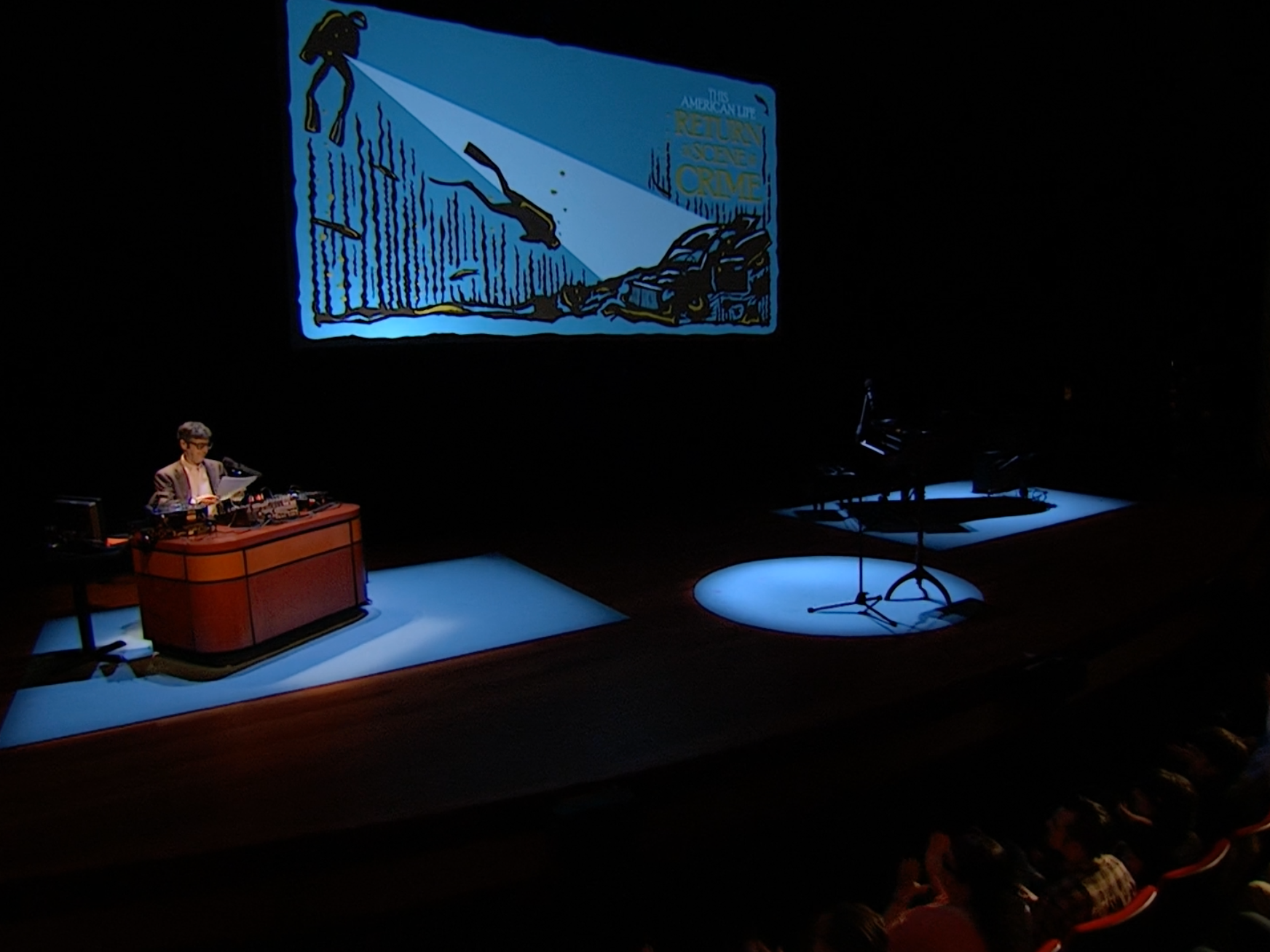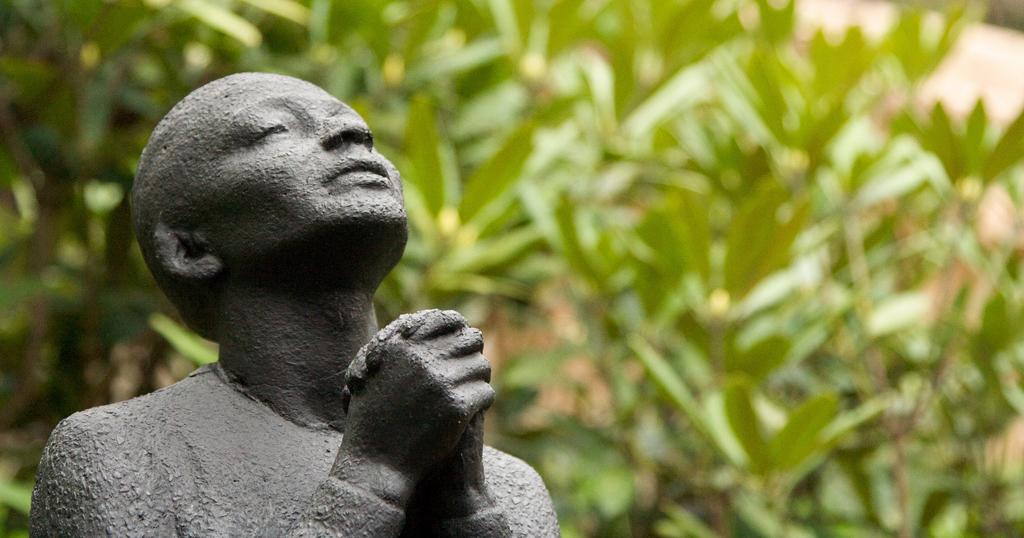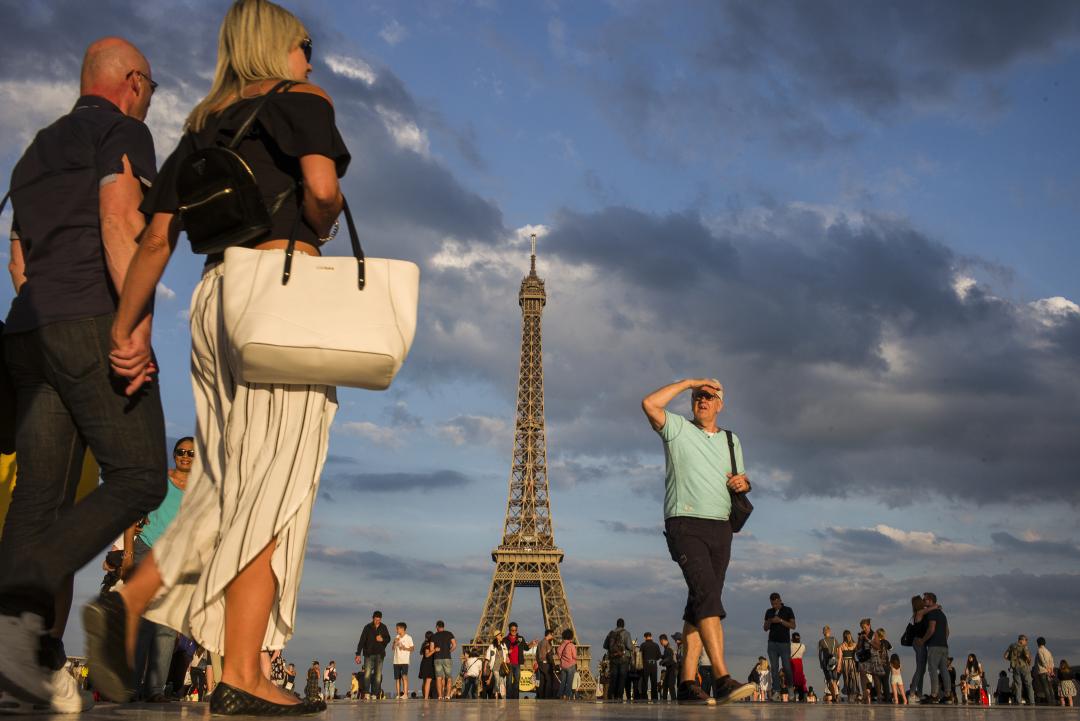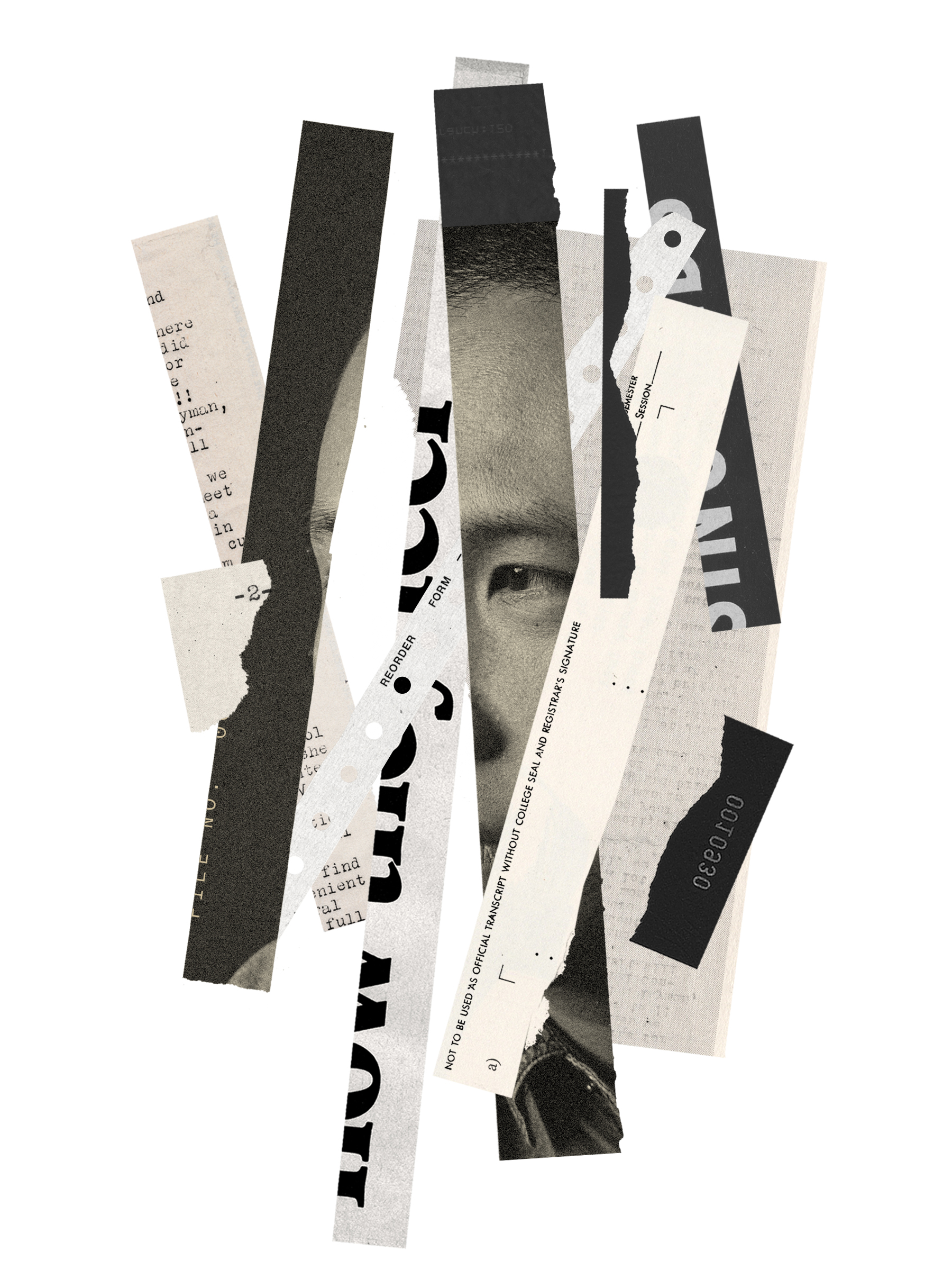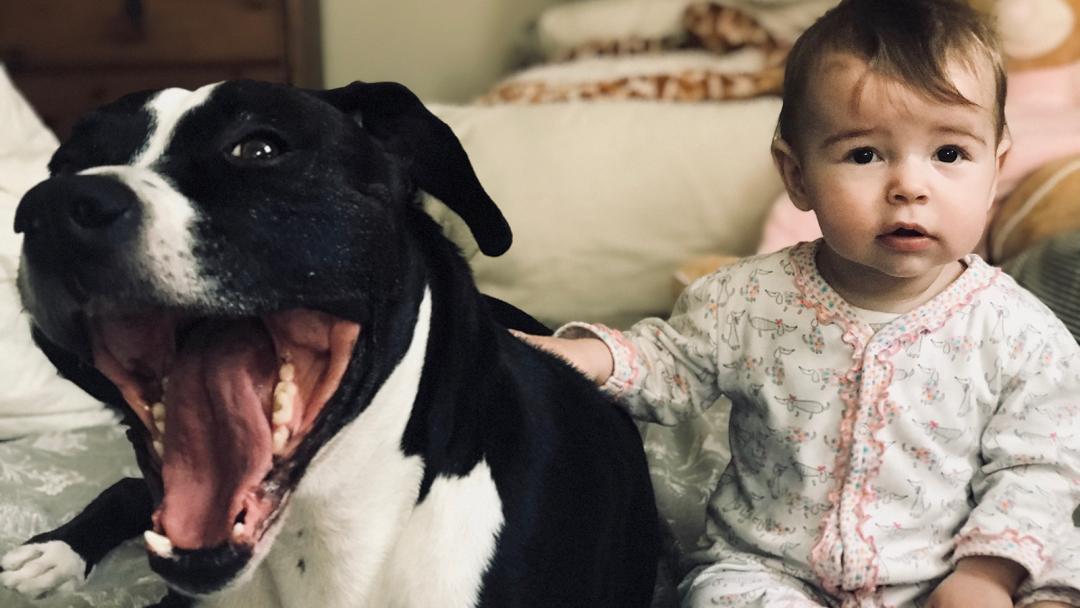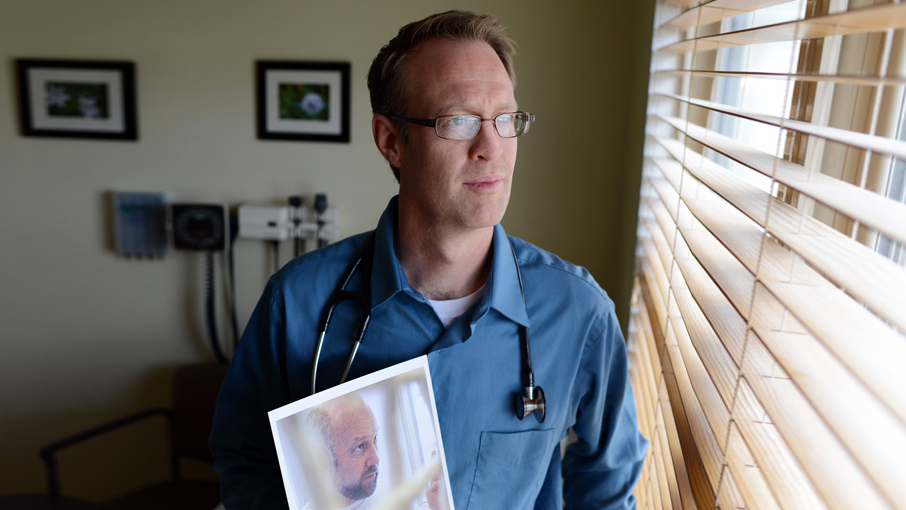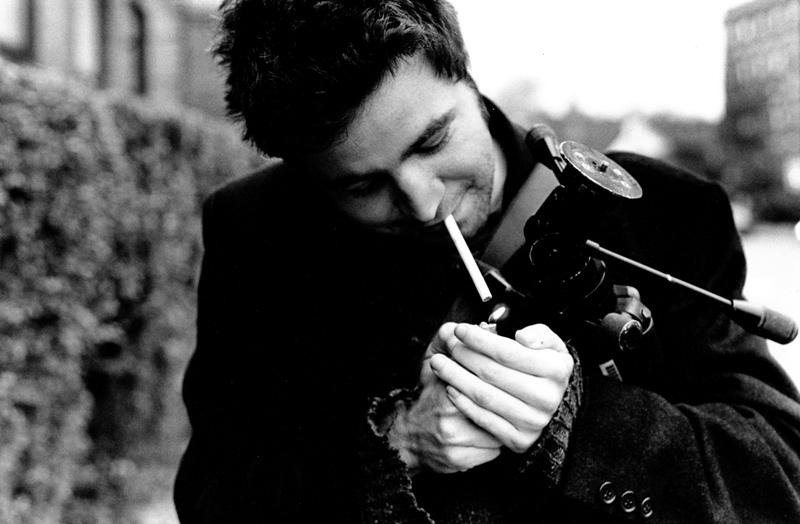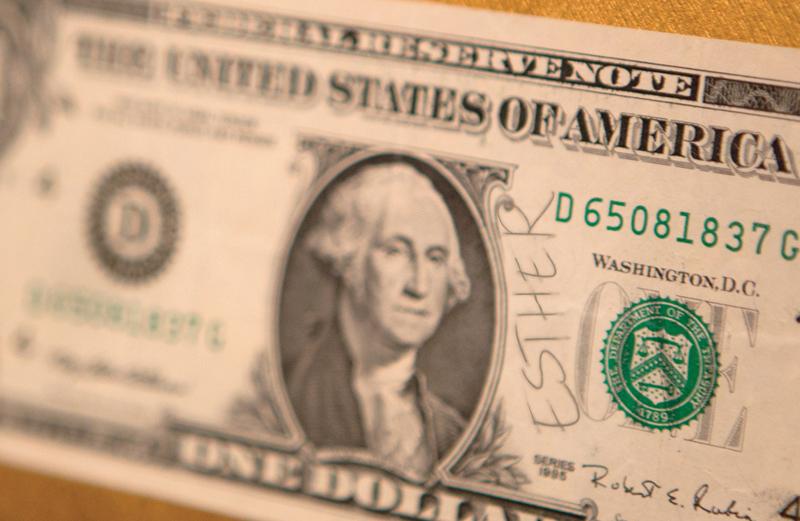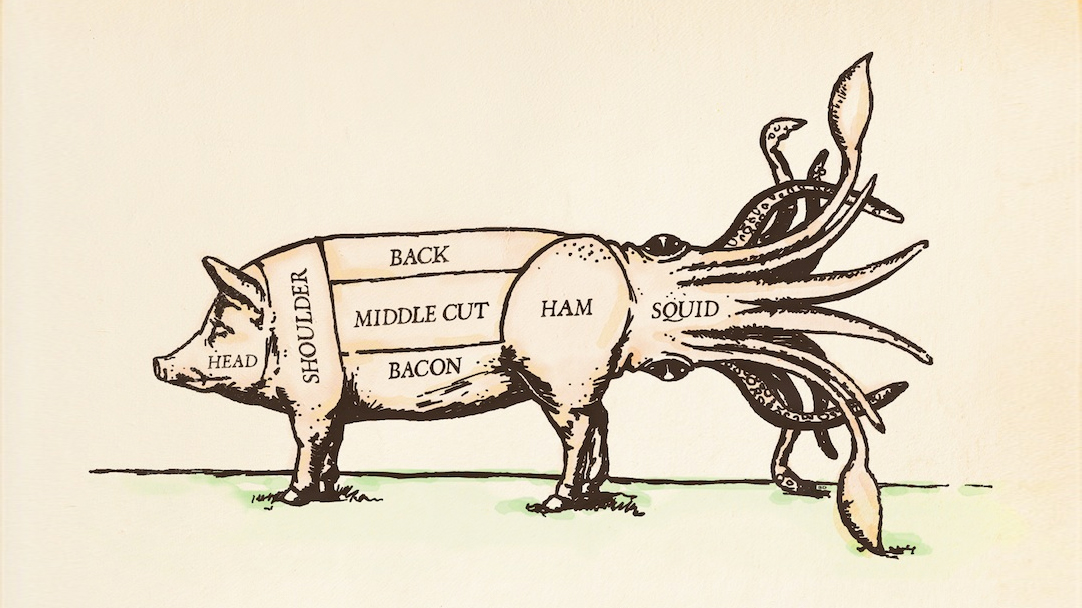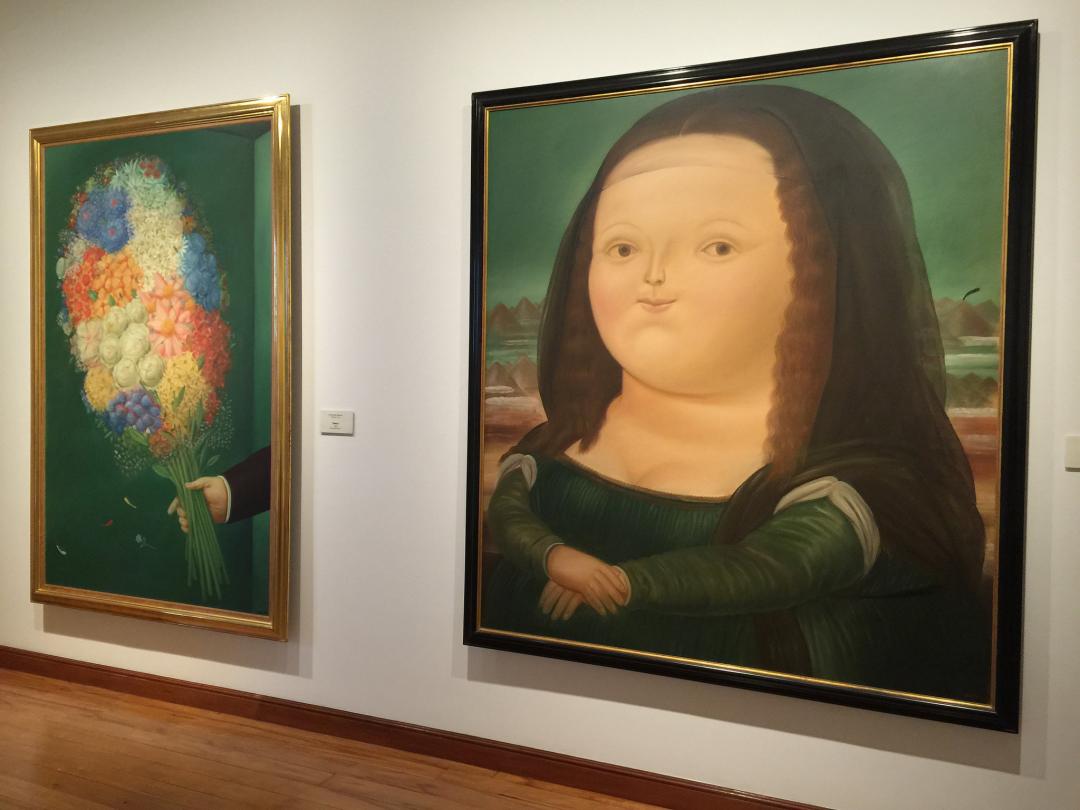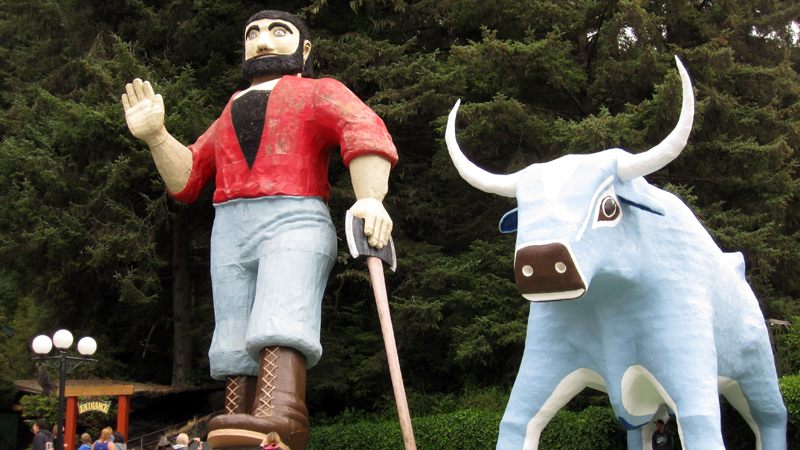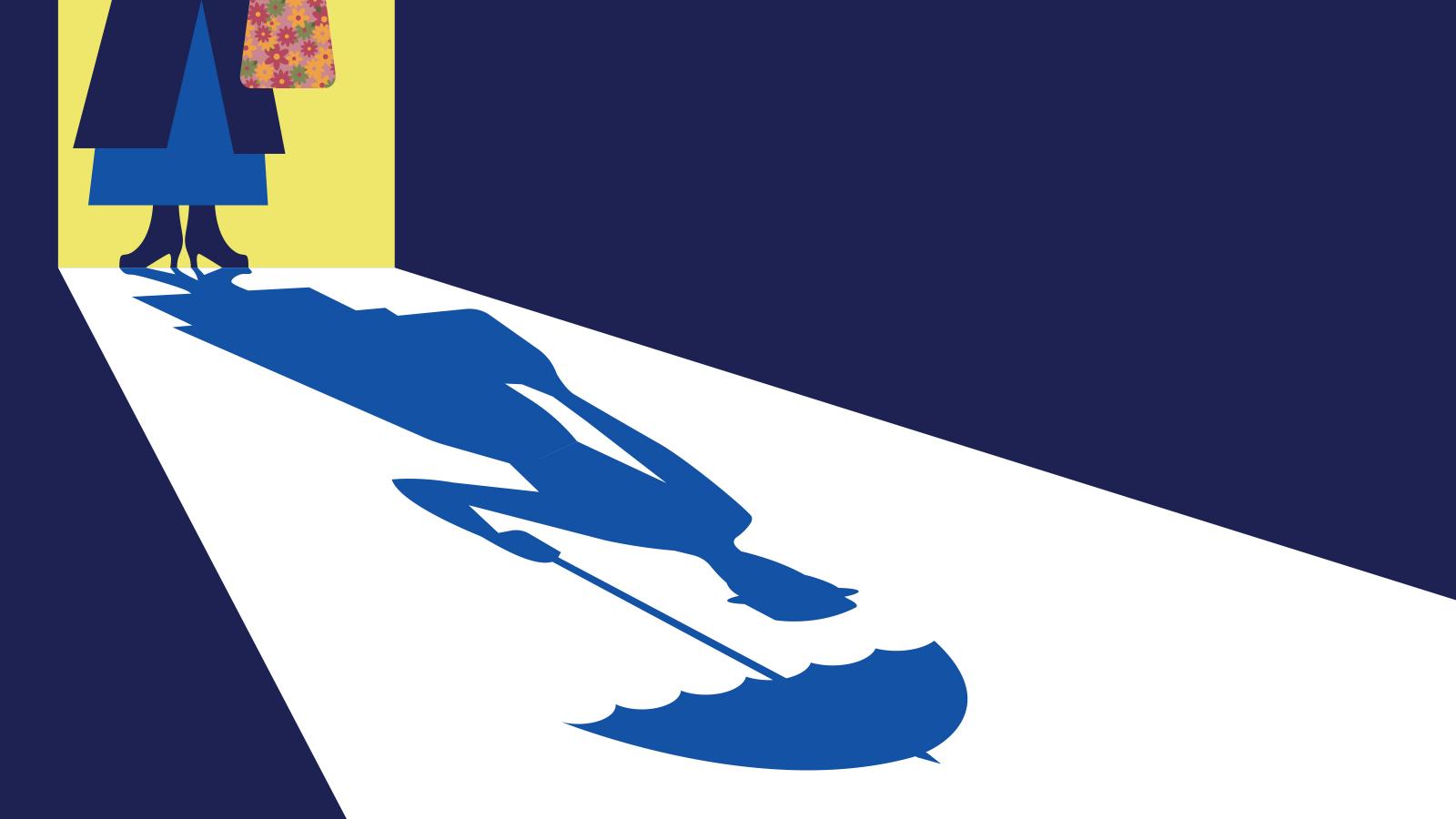Staff Recommendations
The producers of the show name some of their favorite stories.
I recommend David Kestenbaum’s story about disgruntled preschoolers to everyone all the time. It doesn’t matter who you are or how old or if you even like radio stories, you’ll love this. — Lina Misitzis
Sometimes I’m listening to a story and realize, this story isn’t just about something that happened — the telling of the story is a momentous act in itself. It’s arresting, when that hits you. That’s what happens in this remarkable episode from Susan Burton, in which she and her interviewees are actually discussing long-held secrets for the very first time, and reckoning with the impact that the keeping of those secrets has had on them. — Brian Reed
This entire episode is such a vivid time capsule of the winter of 2020. It's a great example of how much feeling radio can convey. I especially love Ben Calhoun's story of a family sick with Covid. It's such a thoughtful and masterfully done interview. — Emanuele Berry
The opening to this show about recovery is not what I expected to hear more than a year into a pandemic. It’s funny and deep. There’s an act of friendship at the end that gave me big feelings. — Chana Joffe-Walt
After 20 years of making audio stories, it doesn't happen all that often, but this story changed my idea of what was possible in the medium. It is as brilliant and ingenious in its structure and form as it is devastating and illuminating in its content. When I heard us talking about a choose-your-own-adventure story on the radio, I thought it seemed impossible. And when I heard how my colleagues had pulled it off, it was so brilliant I literally got dizzy. — Ben Calhoun
This episode is one that still breaks my brain with how masterfully it’s put together. There’s so much empathy and skill in handling this delicate constellation of stories. — Tobin Low
Comedian Anthony Devito tells the story of his grandmother's recent metamorphosis. Full of heart, humor, and a heavy dose of family dynamics, this one has everything I look for in a story. —Elna Baker
This early show is one of my favorites ever, because of its weird concept, the mix of stories and – most of all – Act Three, where we take a medieval scholar to Medieval Times, the dinner-and-jousting arena. To our surprise, he loved it, for fascinating reasons. — Ira Glass
You know how when you buy new music that you love, you just play it over and over? When it aired, I played this “Bobby Dunbar” episode back to back uninterrupted. I found it mesmerizing. It’s a suspiciously ambitious hour of radio — a hundred-year-old mystery brought into modern times. — Robyn Semien
Miki Meek plays us the sound from a phone booth in a field in Japan, where people are invited to pick up the phone and talk to family members who died in the tsunami. People walk in and you hear them awkwardly try to begin a new kind of conversation with a now dead loved one. Or they make small talk, talk weather, read, weep. It is the whole range and it is perfect. — Chana Joffe-Walt
So much about how we feel about a story depends on when we hear it, and I heard this at exactly the right time in my life. I was just entering my twenties and in the process of taking a good, hard look at myself, how others perceived me, and who I wanted to be going forward. Gabriel Delahaye's bracingly honest and awkward experiment helped me understand: I definitely did not want to be an a$$hole...in fact, think I became a better person because of this story. — Stephanie Foo
This story by Nancy Updike is one of the great radio classics, like it should be taught in eighth grade next to The Odyssey. It feels like an old story, and a timeless story, a story about all families and a story about a highly unusual family, people who love each other but can’t be together. If there is a canon of narrative radio, this is where to start. — Zoe Chace
This is the piece of audio I turn to when I need a pick-me-up. There is nothing like hearing Cole's delight at riding a bus for the first time. “Old Cole is dead now.” — Emanuele Berry
I remember when Chana pitched this story. She’d seen a photo essay about a program where students from a struggling public high school in the Bronx would travel three miles away to one of the fanciest private schools in the country. It had piqued her curiosity, so she called some of the teachers involved, and heard a story about one girl, years ago, who’d freaked out when she saw how nice the private school was. And who had somehow disappeared. Chana threw herself into tracking down that girl — and it resulted in one of my favorite stories we’ve ever aired. — Brian Reed
This is one of those episodes where I vividly remember the experience of hearing it, almost in real time. I was on a walk, and I remember what block I was on for certain plot points. The anchor story, by Sam Shaw, captures so perfectly the messy reality of a dreamer who lives in a world bound by physical and existential limits. After all the meaty plot of that story comes a small, lovely coda: a group of This American Life regulars write their own variations of William Carlos Williams’ near-perfect, three-line poem, “This is Just to Say.” — Emily Condon
As far as I can remember, this was the first episode of This American Life that I’d ever heard — and I didn’t actually hear it. I read a transcript. I wasn’t familiar with the show at all, but I was very familiar with its subject, the fantasy writer Piers Anthony. His books were among my favorite novels as a kid and hearing about him, fleshed out in three dimensions, was revelatory. — Neil Drumming
A whole hour on the blurry moment where pre-pubescence and pubescence overlap, in the world, in the classroom, at a dance. Ira, Lisa Pollak, Alex Blumberg, Jonathan Menjivar, and Sarah Koenig all have reporting cameos, plus my favorite Domingo Martinez short story is in here too. If there’s a radio equivalent to channel surfing and skipping all the new stuff just to watch your old standby favorite, which you’ve seen countless times but can’t get enough of, this episode, for me, is that. — Robyn Semien
Like any fan of the show, I’m always delighted when the producers reveal something of their personal lives. There’s just something riveting about this quiet exchange between Ira and Chana — particularly in the moment where Ira pretty clearly and jarringly enunciates the differences between them. — Neil Drumming
I love when the show documents something everyday that nobody would have thought to document, and the world feels full of unknown miniature dramas. This story about an Ethiopian girl ordering tea in English for the first time gives me that feeling. — Chana Joffe-Walt
This was one of my all time favorite stories to produce and co-report, in no small part because I got to work with my dear pal and radio hero, Jonathan Goldstein. I could write about this one for a page and a half but, in short, Chana Joffe-Walt had read two studies that she thought suggested a fun story: One said that 10 percent of people surveyed about “future technologies” wished they could travel in time; the other study said the desire to time travel was less prevalent among people over the age of 50. So Jonny and I set about finding out why people want to time travel and why older people don’t tend to want to. It was an unusual case where we structured the whole thing before we got any of the tape. Jonny and I had a lot of fun doing the interviews and also writing the jokes — especially the jokes we wrote for each other. — Sean Cole
Neil Drumming was friends with Ta-Nehisi Coates before Coates became a best-selling writer. What does that do to a friendship, when one friend becomes famous? A personal essay in audio form. Risky and honest and fun. — Susan Burton
A physicist tries to understand his own mind, and time. All things near and dear to my heart. — David Kestenbaum
Why are poor countries poor is one of the classic questions in economics, and really, in life. This episode on what happened right after Haiti’s earthquake is one of the clearest answers to that question you’ve ever heard. So smart and good. — Zoe Chace
I remember Julie Snyder pointing this story out to me. In addition to being a great story about music and art, and culture and religion, it’s a radio story that was meant to be a radio story. Every time you turn a corner, there’s sound of something and it’s like another dimension of the story opens up. — Ben Calhoun
It's rare to find a story that is both funny and philosophical. Jay Caspian Kang looks at the meaning of our work, our routines, and what we give our lives to, while also making you belly laugh with the folks stuck in the orchestra pit. — Elna Baker
It’s incredibly satisfying to hear Lindy West confront the horrible troll who impersonated her dead father online. — Ira Glass
This is one of the first stories I helped find for the show, where Kurt Braunohler talks about the Rumspringa-like break he and an ex-girlfriend took from one another. I love the questions that Ira asks. And there's a part about a dog and sugar that I still think about often. —Elna Baker
I listen to this once a year. It’s just so masterfully executed. And it’s a delight that also tells you so much about small towns, power, and accountability. — Nadia Reiman
This is a real epic, about a man named Abdi leaving home and trying like hell to get to a better life. Abdi is so charismatic, and his story plays out with some tense, real-time recordings as he tries to stay alive and out of jail in an increasingly angry city. It’s just a great story. — Nancy Updike
This whole show, The Show of Delights: five-star recommendation. But Miki's story about her mom is the one I think about all the time. It might be the most real I've ever heard anyone be on the radio. I love it so, so much. — Diane Wu
I produced this episode, and it almost didn't happen. Some staffers wanted to run different stories that week, but I stubbornly insisted on combining these. I liked the idea of doing something about phone hotlines. So Sean and I sat in his office for an hour running through various important phone calls in his life. When he suggested his relationship with his stepdad, the entire show clicked into place. In the end, the show says something about the inimitable power of the sound of a person's voice...and in an era of texting and gchatting, this reminder seems increasingly valuable. — Stephanie Foo
I was blown away by Lilly Sullivan’s story about how much harder it is for scientists focusing on invertebrates (animals without spines) than it is for scientists focusing on vertebrates (animals with spines). It’s this perfect little parable about human prejudice, contradicting realities, and how two things can be true at once. — Lina Misitzis
Joel Lovell’s story in Act One is a model of great writing for radio: insightful, funny, and giving the story meaning through his sheer enthusiasm. Act Two — written right on the cusp of America’s poker boom — is the story that addicted me to low-stakes poker for a few years. — Ira Glass
This story was made before I worked at the show, so I can take no credit for its greatness. Jack Hitt reported on a group of inmates as they rehearsed and staged the last act of Hamlet. I heard it as a listener, like everybody else, and I just think it’s the absolute perfect radio story. A perfect hour. — Brian Reed
This hour-long tragedy/adventure story starts with a guy in Somalia who wins a very rare pass to the United States — a “diversity visa” — but it turns out it’s incredibly hard to get from here to there, even with a golden ticket like Abdi has. And no one explains how emotional and intense and funny and romantic the journey is like Abdi. It’s one of those rare page-turner feeling stories that also helps you understand something very important about our immigration system. I was in tears by the end of listening to it, mostly out of relief that the adrenaline I was dealing with while listening was finally over. — Zoe Chace
There is something magical about the way this story transports you to the streets of Hong Kong. Daine Wu guides us so beautifully through the space and emotion of this scene. — Emanuele Berry
A story of a mother and her son built out of small moments, perfectly handled to preserve their intimacy and depth. Nancy Updike always understands the weight, and meaning of small moments like these, and here she uses them to get us as close up as we can to what is real about the lives of two human beings. — Chana Joffe-Walt
An hour-long show about taking care of an alcoholic parent. Gosh, that sounds bleak even to me, and I’m drawn to that kind of thing. Let me try again. In his thirties, Josh Bearman steps in to take care of his mother when her life is falling apart. Gets at the particular sadness of a parent self-destructing. Beautiful and personal. Not redemptive. — Susan Burton
I first heard this after it aired. I found a CD of it at WBEZ. I was just out of college — working in the station’s newsroom at the time — and kind of adopting Chicago as my hometown, and trying to take in everything about it. For me, this show took this powerful chapter of history, and just fundamentally changed how I thought political stories could be told on the radio. — Ben Calhoun
This story is an example of our show at it's best — our producers notices something out in the world and follows their genuine curiosity. The fact that Sean Cole transformed a simple observation into this beautiful story never ceases to amaze me. — Aviva DeKornfeld
Most of us have a set idea of what a standard American high school looks like. These two shows will completely flip that on its head. This American Life sent reporters to embed at Harper High School on the South Side of Chicago for six months. They were there the year after three Harper students had been shot to death, and they documented how the school created a new version of normal, while grappling with the random violence that surrounded them. It’s heartbreaking and uplifting and even funny. — Dana Chivvis
Neil Drumming is a master at finding stories that he feels a personal connection to, and then using that connection as a way of framing the story. You get the see the story through his eyes, which are fascinating eyes to see things through. This is one of his most inventive attempts at that, in which he sets up two grown men on a platonic date — a man-date — because he’s too lazy to make new friends himself. It’s so enjoyable to listen to. — Brian Reed
No we did not invent this episode while stoned. I swear. Five acts, each mapping the world a different way: Sight, sound, smell, touch, taste. A totally weird, great array of stories. — Ira Glass
Ira Glass’s perfect, intimate rendering of the American prom experience, and Susan Burton with what it looks like when that prom experience is actually life-changing. Plus Sweet Valley High. — Chana Joffe-Walt
A masterpiece of reporting on the legacy of a huge historical moment — the assassination of Israeli prime minister Yitzak Rabin. Told irresistibly, like a page-turner mystery novel, by Dan Ephron and Nancy Updike. — Zoe Chace
Close look at school segregation in Missouri. Not only one of the most exceptional episodes of This American Life, but among the strongest journalism anywhere in the past decade. This story brought new attention to integration, a project that we as a nation started but then abandoned. Expertly reported, and emotional, too. A recording of a town meeting at which parents air their grievances about Black kids coming to a white school is startling and revealing. Listened with my then-10-year-old in the car; this episode is good for kids, not because it’s “safe,” but because it’s moving and provocative. This American Life producer Chana Joffe-Walt and MacArthur “genius” grant winner Nikole Hannah-Jones tell this story. — Susan Burton
Reading David Rakoff is a pleasure. Hearing David Rakoff on the radio has been among the great joys and privileges of my life. No one is funnier, more charming, better at crafting a masterful radio riff. He feels like radio in its purest form — a voice that always was, beyond time. Even now, years after his death, I’ll regularly find myself laughing aloud as I walk down the street, thinking of a joke from one of his stories, or one of his perfect turns of phrase. — Emily Condon
I didn’t know what to expect with this story, but the result is something very tender and intimate. And for me, it’s a fine example of “companion radio” — a voice on the wireless telling you, in so many words, that you are a person, you are not alone, that the past is the past, and there is always a chance that tomorrow might be better. Which is incredible for three minutes. — Bim Adewunmi
This one’s a modern day Serpico kind of story, with secret recordings and everything. In this case the recordings came from a NYPD officer who was trying to document police corruption inside his Brooklyn precinct. And I remember so clearly still, Ira and I sitting in his office, listening to the raw audio the officer had collected and being floored at how a key moment plays out. It’s still amazing to me. It tells you so much about both the officer and the exact situation he is in. — Robyn Semien
This is the first big investigative story I did at the show, and I’m still very proud of it. It tells the story of a man named Oscar, who learns in his thirties that the life story he thought he had is not his life story at all. But his dramatic personal story is tied into a much bigger one about delayed justice and an entire country finally reckoning with its past. — Brian Reed
To be honest, I didn’t want to produce this story at first because the main character seemed like kind of a jerk. But I really enjoyed our interview, and the challenge of making the story became figuring out what was relatable about him. From that point on, the narrative was so clear-cut that I got to just have fun with it. — Neil Drumming
The very best reporting of how the financial crisis happened is Adam Davidson and Alex Blumberg’s “Giant Pool of Money.” The financial crisis happened because of people — not “banks” — but people inside and outside the financial system. This episode makes you understand that to your core. — Zoe Chace
The very premise of this story — that Diane Wu had never seen the second half of “The Sound of Music,” and therefore didn’t know about, y'know, the Nazis — makes me giggle. The execution of this story is just as delightful. — Tobin Low
In this story, Nancy Updike spends time at a hospice. I love this one because it’s so deeply personal and moving. In the recordings you feel everything Nancy feels, and also, she writes with such precision and honesty. — Elna Baker
The tape in this one is killer. You really feel like you’re listening in. And the characters! Couldn’t ask for a better combination. — Nadia Reiman
Lin-Manuel Miranda adapts a reported story into a musical. High school, yearning, betrayal, and drug policy, too. Material of real life transformed into art: These songs are as permanent as those on any original cast recording. This is This American Life at its best — inventive, lasting — and Miranda as well — assured, exuberant, casually brilliant. — Susan Burton
This whole show, about Brooklyn’s West Indian Day Parade, is gorgeous. But Imani Brown’s essay—full disclosure: I produced it—is my favourite part of it. The hush of pre-dawn J’ouvert is echoed in the earlier paragraphs, and then builds up as day breaks and the steel pan music and devilish Grenadian jab jabs really get going. I love the sound design of the whole piece; her words, her voice, and the sounds of J’ouvert sound like magic to me. — Bim Adewunmi
I am always a little jealous when people tell me that a radio story made them cry, because it never happens for me. Until I heard this one. There are three words in this story that made me burst into tears the first time I heard them. And then again, for the second time, later that same day. I recommend this stoic, tender story. — Diane Wu
This is a perfect radio story. I think about it all the time. It’s great reporting, great writing. Chana’s last interview in it is astonishing. — Nancy Updike
I can remember exactly where I was when I first heard this story by Starlee Kine about a break-up. I was standing underneath an old wooden staircase, totally transfixed and trying not to breathe too loudly so I didn't interrupt it. This story is what first made me fall in love with This American Life. It also made me feel understood and less alone in the world. —Elna Baker
I heard this show over a decade ago, when I wasn’t married, and it helped me believe (like I did then) that I should never get married, and I’ve listened since, as a married person, and it has the opposite result. I guess, if you like a story that gets in to the nitty-gritty on love and struggle, listen to this! Also “Best Laid Plan” in the Valentine’s Day show. Also “Two Can Be as Sad As One” in Fermi’s Paradox show. Also “Let Me Kiss Your Stiff Upper Lip” in the Intimacy show. And please please listen to Dr. Phil in the “Break-Up” show. Another: Lydia Davis’ short story “Break It Down” in the Intimacy show. — Robyn Semien
An audience favorite where we upend the normal rules of the program and try to squeeze as many stories as we can into one hour. The show ends with the story that always makes our longtime Senior Producer Julie Snyder cry. — Ira Glass
The comedian W. Kamau Bell meets up with his wife, who’s white, and her friends at a cafe, and a waitress tries to shoo him away, thinking he’s just some random Black guy bothering them. It’s the kind of street-level racism that’s somehow shocking and depressingly unsurprising at the same time. But what Kamau made out of that incident added so much to the conversation about race in this country, and he introduces us to characters the likes of which I hadn’t heard on This American Life before. I feel like most stories about race on public radio are 101 — in that they’re made for white audiences. This story is so much more advanced that that. Having had nothing to do with the production of this piece, I can say I was so proud of our show for putting it on the air. — Sean Cole
I love this piece because at the beginning of the story, David Kestenbaum totally convinces me of the meaninglessness of family trees. But then, he brings me along as he reconsiders, and by the end of the story — just 10 short minutes later — I'm crying about a stack of postcards from his distant relative. — Aviva DeKornfeld
This is one of the most intensely personal and heartbreaking stories I’ve ever heard. You’d be served well if you listened to all the radio that Alix Spiegel ever made — but this is one of her very best. — Zoe Chace
I remember hearing this story and being blown away by Nancy Updike — a recurring experience for me. Her writing is always so casual, but precise. In particular, there’s this stretch, where Nancy describes the Green Zone — and she takes you from the wide shot, to a close up. It’s like she’s a director moving a camera. That's something I admire about Nancy's work in general. She’s always zooming in and out editorially — it’s a through line, I think, in how she handles and tells stories. I’ve always looked up to her for that, and tried to train myself to do that more. — Ben Calhoun
This episode is close to my heart because I adored and related so strongly to the guy at the center of it, Cole Lindbergh. He started at his dream job as a teenager, reinvented the job to conform to his own personality and sense of fun, and then because of that, found himself suspended in a kidlike emotional state for way longer than his loved ones thought advisable. And yes okay maybe I’m accidentally getting too personal in this show recommendation. Let’s just leave it at that. — Ira Glass
This was the first piece I did for the show. It’s one of those rare stories where the people it happened to tell it entirely themselves totally beautifully. — David Kestenbaum
It’s clear how much fun everyone had imagining this show and putting it together, and that’s part of the fun of listening to it. The show manages to cram 20 tiny stories into an hour, and there’s still room for real emotions and stakes. — Nancy Updike
A month at a car dealership. There’s a countdown that drives the plot — the dealership has to sell 129 cars by the end of the month to get a bonus. But it’s also a closely observed character study. Featuring solos from many members of the band: Sean Cole, Ira, Sarah Koenig, Brian Reed, and Robyn Semien all contribute stories. — Susan Burton
Bim Adewunmi’s essay opening this show, following the killing of George Floyd, is bracing and intimate. You feel like you are sitting directly inside a person's thoughts. Like so much of Bim’s writing, she makes it look easy to describe a feeling in words. It’s not! — Chana Joffe-Walt
I am pretty sure I voted against doing this story about a dumb college prank when it was pitched, but here I am adding it to my favorites. It is none of the things I feared. Idiocy is called out! The female love interest does not forgive the idiocy! And she has things to say! Interesting things! Plus, the idiot is not an idiot by the time you get to Neil Drumming's ending, which kills. — Chana Joffe-Walt
As Donald Trump started gaining traction in the Republican primaries, we sent Zoe Chace to South Carolina. We were bad editors and gave her very little direction; we just said, “Go find a story!” I remember she called me one day from the road and said she’d met this high school student named Alex, and she couldn’t stop thinking of him. He was Black, gay, and an ardent Trump supporter. I told her she should go back and see him again. Maybe there’d be a story. This is the incredible story she delivered, documenting the complex ways our personalities and experiences influence who we vote for. — Brian Reed
Scott Carrier is one of the weirdest voices in radio, indescribable. One time, when he’d lost everything in his life, he took a job testing people for signs of schizophrenia. — Zoe Chace
Combining intense personal candor with excellent reporting, interviewing, and writing, Elna’s story about the Mormon practice of compelling kids to confess their sexual “sins” is an example of the show at its finest. The interview with the LDS representative towards the end is especially compelling. — Sean Cole
This story is so important, and so moving — and honestly, in its production, Brian Reed (who produced it) encountered so many challenges. But through total grit and faith, pulled together this hour that left me frozen on my kitchen floor when it aired. — Ben Calhoun
Sean Cole’s writing is so deft in this piece, and every choice to give Jerome Ellis space to pause and breathe—and pause again—makes the story shine so bright. It’s unlike anything else I’ve ever heard on our show. — Bim Adewunmi
Elna Baker tells her story of being fat and then losing a lot of weight in her twenties. Intimate, with attention to the experience of being in a body that is unusual on the show: “After dropping the weight, I had so much extra skin that I could lay on my side and pull it a half foot in either direction.” About not just weight, but about wanting something even though it’s the wrong thing to want, or you want it for the wrong reasons. Complicated, vulnerable, confessional, original. — Susan Burton
This was one of my favorite shows to work on. Nikole Hannah-Jones was a brilliant collaborator, and we had such a satisfyingly clear mission: We were going to talk about school segregation. Segregation is the basic, assumed landscape of most people’s lives, but asking people in St Louis to talk about it led to such interesting tape. I remember rushing home from our interview with the school superintendent so I could listen to the interview all over again. — Chana Joffe-Walt
I love this piece in which Lilly Sullivan takes a factoid about a whale and turns it into a thoughtful meditation about solitude. It's a lovely glimpse into her brain. — Emanuele Berry
This is a tribute that Ira wrote to his best friend Mary, who died in March of 2017 at age 89. I think the best of the stories on our show help you figure out things that you think about your own life, and give shape to thoughts and feelings that had otherwise been amorphous. My mom died about a year and a half before this tribute aired. I’ve heard it probably four or five times, including in the first edits of it, and I cry every time — like genuinely sob — partly because I know the ending is coming. Ira says things here that I couldn’t have said better about my own grief. I’m choking up as I type this. — Sean Cole
This is something that should be heard as a whole. Just amazing how all the parts come together to make a larger point about working in America. — Nadia Reiman
I listened to this long before I worked at This American Life and was completely flabbergasted by the minute attention to detail that goes into dreaming up the Onion headlines every week. I couldn't believe how much chaff the Onion threw out to get to its gems, and the elaborate, specific and terrifically serious systems they'd built around humor. Then I started working here, and I just recently listened to this again. I was shocked. My one big retrospective edit for Ira in this piece is: how does he not mention that this is exactly what working at This American Life is like? Seriously. Made me realize that we're a helluva tough room, too. — Stephanie Foo
This early show just has a great array of stories. I love especially the opening and the emotion-filled Canada Lee story. — Ira Glass
Lilly Sullivan pulls off a kind of magic trick, turning one simple question — why are people buying so many guns right now? — into a sweeping, intimate, unsettling document of what it felt like to be alive in America in 2020. Listening to it made me feel like I could see my whole country more clearly. — Diane Wu
Two openings: The first one here starts out, “Things were just starting to look up for Jorge.” The next one, totally different, starts out this way: “Well it was Danielle’s cousin Lynn who said it best.” You might forget because there are so many podcasts now that this is a very strange and startling way to begin a radio show. These two prologues to the show are master classes on how to take a small, personal moment in a person’s life and make it mean something very big. I think about these two stories all the time. — Zoe Chace
I love when my co-workers and I get to go report a story together. It’s just fun to be out in the world together, strategizing the tape we want to get and the scenes we want to document. For this episode, a bunch of us spent an entire month at a car dealership on Long Island as the salespeople there tried desperately to make their monthly quota. It was so action-packed! By the last day of the month, there were five or six of us there from dusk to midnight, running around with microphones, trying to catch every last negotiation, every last test ride. Saying, “You go follow Jason! I’ll go get Manny!” It was exhausting and exhilarating and a ton of fun. — Brian Reed
Another Chana Joffe-Walt special that shows how this country works by focusing in on a small group of people in a place. The rise of people on disability insurance is like the missing puzzle piece of our economy that few people see and no one explains like Chana does. — Zoe Chace
I was pretty torn up watching Dan Savage talk about losing his mom on stage in front of a sold-out crowd. I could never do anything like that. I lost my mom too, a few years before this show, and I often wished I could’ve sped up how hard and long I mourned her. I still wonder if Dan’s daring had that benefit. — Robyn Semien
This is my favorite radio story I’ve ever heard. Maybe because it got me into radio professionally. It brought me such joy listening to it alone, in my studio apartment in Philadelphia one night, that I decided I would have to figure out a way to learn how to do stories like this one, by one of my favorite radio-makers ever: Jonathan Goldstein. — Zoe Chace
The main reason I picked this one is because it contains a This American Life classic by Alix Spiegel about prayer walkers in Colorado Springs. But then I realized that the whole episode is superlative. From the very first words of it, I remember what drew me to this show in the first place. Ira begins the program by saying, “Okay, here’s a couple for you.” It’s like he can’t wait to tell you the story he’s telling you, and like he’s telling it only to you. Alix’s story is heartbreakingly beautiful and surprising and empathetic — intimately personal at the same time it’s universal. I feel like I learned stuff about making radio stories from her here. There’s this moment where she wants to give you a sense of this one character and his proximity both in the story and in relation to her, and she does it, in part, by simply saying, “I like him. I like him a lot.” And then my favorite guy Scott Carrier rounds out the episode with what is essentially a funny, moving biblical fable about his brother and him. — Sean Cole
I visit David Sedaris in Paris and learn all sorts of things about him. Janet McDonald rounds out the show with a funny, sharp-eyed look at what it’s like to be a Black American ex-pat there. — Ira Glass
This is a feat of journalism and exquisite writing by Nancy Updike. In 2004, she documented the growing number of private-sector workers in Iraq. The way Act One opens contains one of my favorite pieces of tape of all time and so perfectly sets up the rest of the show. And just listen to the way she describes this one restaurant in the Green Zone: “...a Chinese place that is so obscurely located, it’s like the gay bars of the 50s. You have to go with someone who already knows where it is. Otherwise, why would you ever walk through the chipped opening in the stone wall next to the hospital, and go down the long, rubble filled alley? And if you did, how would you know to make a left into the small, crab-grassy courtyard with plastic chairs and tables with boxes of tissue on them?” That one paragraph alone is a master class on writing for radio or just writing period. I love this episode so much. — Sean Cole
Scott Carrier’s radio stories are completely original — drenched in this haunted feeling that’s like no one else. These days he makes a podcast called Home of the Brave, but he used to do lots of stories on our show. This episode is a compilation of some of the most memorable. — Ira Glass
I remember where I physically was while listening to this prologue, largely because I was laughing my ass off in public. It’s one of my very favorite beginnings to any episode we’ve ever made. — Sean Cole
I think about this story all the time. It’s so well done, so considered, so fair. Here’s the line that’s stuck to my ribs: “It was the auditory equivalent of seeing a snow leopard stroll through the subway car.” A snow leopard on the subway! There’s no one like Nancy Updike. — Bim Adewunmi
One of the first stories I heard on This American Life, and possibly Mike Birbiglia’s funniest. Mike learns he has a sleep disorder, but one that kind of gives him superpowers. Superpowers that almost kill him. — Dana Chivvis
Neil’s interview with his dad in this story kills me. The story overall is a little gem. A simple question about his family’s vacation habits leads him to have a conversation with his father he’d never had before. — Nancy Updike
The first time I heard This American Life, I was 20 and the assistant manager of a store that sold collectibles (comics, sports cards, role-playing games) and pornography. One afternoon I was in the backroom doing the day’s banking, and I turned on the radio. A man with a high voice was telling a story about the succession of pets his family had over the years. I laughed and laughed until the gut-punch turn at the end, when the laugh turned to a yelping sob. The feeling that moment caused me to seek out more David Sedaris, and more of the show and in some ways probably determined the course of the my life over the 18 years since it aired. I no longer work at a porn store, for one. — Emily Condon
Nancy Updike tells the story of an Iraqi interpreter named Sarah. Something like a profile for the radio. She expertly situates a very personal story in a larger context. About motherhood and transformation; about being stuck in one life and then escaping into another, more vital life — and the price you pay for that. (In wartime Iraq, it’s devastatingly high.) This whole episode, hosted by Nancy, is extraordinary. — Susan Burton
An amazing story by the amazing Sarah Koenig, pre-Serial. — David Kestenbaum
If you gave an assignment to a hundred journalists to go report on a Navy aircraft carrier--I'm certain that you could get a bunch of different versions of that story. Exposés, investigative pieces, puff pieces. But I really doubt that anyone but This American Life could've gotten this emotive, funny, honest, and realistic picture of Navy life. Also, I've had servicemembers tell me they were impressed with Ira's ability to keep calm and roll tape when he thinks a terrible accident has just occurred. — Stephanie Foo
I’m a sucker for stories about relationships. And Kurt Braunohler is wonderfully frank and articulate about his experiences and feelings during this very fraught and potentially disastrous relationship experiment. It’s disturbing and familiar and funny all at once. — Neil Drumming
Of all the stories and shows I’ve been privileged to work on, I am especially proud of these. I remember at one point those of us who worked on these episodes were working what I think was our sixth weekend straight, and Ira said, “I think we all realize this is some of the most important work we might ever get to do.” I still feel that way. I feel grateful to Harper and the staff and families who trusted us with their stories. I feel grateful to have been shoulder to shoulder with Julie, Ira, Robyn, Linda and Alex. I learned so much from all the other journalists on that team. It pains me that years later Chicago is still struggling so desperately with this same issue. — Ben Calhoun
Truly something special that shows you what radio can do. It’s surprising in every way, and Carmen Maria Machado is a gift of a writer. — Nadia Reiman
My favorite nonfiction storyteller, Michael Lewis, author of Moneyball and The Big Short, comes onto our show with a spectacularly interesting story. — Ira Glass
The story that gave birth to Planet Money where I worked for years. It’s still an inspiration to me. — David Kestenbaum
Zoe is one of my favorite people to listen to on the radio. She always sounds like she’s paying attention. She’s interested. Her political reporting throughout the 2016 political campaign was phenomenal (which is why she won a duPont Award for it). The story she did about Tony Beam, a conservative radio host, stands out for me. Zoe gets inside a jokey battle Tony is having with one of his listeners, and it ends up being a great election story. — Nancy Updike
A masterpiece in story structure. Watch out for that steak scene, it makes the whole story spin on that axis. It’s unlike anything I’ve ever heard. — Nadia Reiman
This story is as beautiful as it is important. It is as original and brilliant as both Jerome Ellis and Sean Cole are. — Ben Calhoun
Quite simply, one of the best radio stories ever made. About why our world is like it is. Chana Joffe-Walt tells the story of a girl at a public school in the Bronx, who visits a fancy private school three miles away, and what happens after that. — Zoe Chace
Some of David Sedaris’s most memorable writing is when he’s not trying to be funny at all. Another like this is his story “Now We Are Five.” — Ira Glass
If you haven’t listened to the show's reporting on Hurricane Katrina, maybe do that first. They are very special shows, during a time when the country is reporting the same tragedy simultaneously, but the-first person accounts of what happened by This American Life are time capsules of American compassion, and its absence. Those shows made me want to do that kind of journalism. Our 10-year follow up show is one of the things I’m proudest to have worked on. Especially great, and my personal favorite, is Zoe’s story at Mercede’s Place, and her subsequent, intimate talk with Jean Gibson. Zoe is so in her skin talking to those strangers at a bar about anything, even tragedy. And Jean’s comfort opening up to Zoe feels like they are more family to one another than friends. — Robyn Semien
This story, about a phone booth in Japan that attracts thousands of people who lost loved ones in the 2011 tsunami and earthquake, totally gutted me. Miki writes this one so beautifully. It opened my heart in a way no other story has before. — Elna Baker
Sarah Koenig — the Serial host — did this story about her dad that starts really funny (he insisted that he invented thumb wrestling) and then tells some amazing history. He was one of the real-life Mad Men back in the 50s and 60s, creating some of the iconic ads of that era. — Ira Glass
My colleague Nadia Reiman has a unique ability to do stories about immigration policy that dive down past all the wonky political machinations and into intimate, relatable, personal narratives. This one, about a young Laotian woman trapped in a special kind of Kafkaesque hell, is one of my favorites. It’s got what we’ve referred to at the show as “the holy shit factor.” — Sean Cole
A college freshman who works in the campus post office opens other people’s mail and imagines their lives. A story with quiet power. Written in the 1980s, aired in the 1990s, when it was still — just barely — customary to be a college freshman handwriting letters. But captures something timeless, the feeling that your life is smaller, and lesser, and that others inhabit brighter, more connected, loving worlds. By the novelist Mona Simpson. — Susan Burton
Putting together this show with Sarah Koenig was probably the most fun I’ve ever had producing anything. Listeners sent us thousands of coincidence stories, and then I lined up my favorites and surprised Sarah with them in the studio. She never knew what the punchline of the story was, but I did, which made it really fun to watch as she did the interviews. We laughed so much. There’s one story in this show — Brother Can You Spare a Dime — that I literally can’t retell because it cracks me up too much. The moment I try to speak it aloud, I dissolve into stitches of laughter. — Brian Reed
I am still awed by the doggedness with which Ben Calhoun pursued this seemingly trivial topic to the ends of the earth. I remember going to a party while listening to this piece in my headphones and just standing outside like an idiot waiting for it to come to its satisfying conclusion. — Neil Drumming
This show will change how you think about foiled terrorist plots. Plus, it’s hard to turn down a story about a government sting. Not to mention the case was prosecuted by Chris Christie, back before he was governor of New Jersey. — Dana Chivvis
I love this essay. Mariya’s writing is sharp and honest. She does not let up. The first time I heard the essay was over the phone when Mariya was reading a draft to some producers — Robyn Semien had been working with her. When Mariya finished reading, we were all silent. — Nancy Updike
Back in the early 2000s, I was listening to the radio one afternoon, and I heard a story about a guy who lived in Texas who, on a lark, listed himself as Willie Nelson in the phone book. By the end of the story I was weeping, and I wanted to hear it again right away. There was no internet around, at least not in my life, so I found a blank cassette, and called the radio station to find out when they were broadcasting it again. I taped it, and then listened to it in my car many times in the ensuing years. The less said about it going in, the better. But boy, did I love that story. — Emily Condon
Before Sarah Koenig created Serial, she was making stories like "Dr. Gilmer and Mr. Hyde" for This American Life. This is one of the great mystery stories I’ve ever heard. It’s also one of the best hours I’ve spent listening to the radio. — Zoe Chace
There are shows that come back to haunt you, that make you wonder if you’re getting your priorities right, or being kind enough to yourself and the people around you. Lindy West and Elna Baker especially do that for me in this show that Susan Burton had a vision for, and produced. — Robyn Semien
This is a song that the show commissioned for an episode about Afrofuturism produced by Neil Drumming and Stephanie Foo. Neil conceived of the episode and hosted most of it. I fiercely love the entire episode, but I had a particular moment listening to this song. It’s from the hip hop group clppng featuring Daveed Diggs from the Broadway show Hamilton. It’s based on the myth that when pregnant women were thrown off of slave ships during the middle passage, their children were born underwater and created a whole underwater civilization. The story, and the song, are both haunting and upsettingly beautiful. This is like nothing I’ve heard anywhere else on public radio. — Sean Cole
"The Giant Pool of Money" was a double revelation for me. First, a complex system made generously accessible and relevant. Second, a blueprint for a new way to make radio. I had never seen radio used to tell a story about individual human experiences and draw an intricate map of the much larger system those humans lived in. It’s a model I’ve been trying to copy ever since. —Chana Joffe-Walt
I don’t know why, but this top to the show always sticks with me. It’s just so delightful. I think I actually applauded when I heard it on the radio. — David Kestenbaum
A lot of my favorite nonfiction takes the specific and extraordinary, and looks at it through a prism that makes it speak to the nature of the world we all live in. I remember when I first heard this show, just loving how Sarah built this diorama of a story that did just that. —Ben Calhoun



